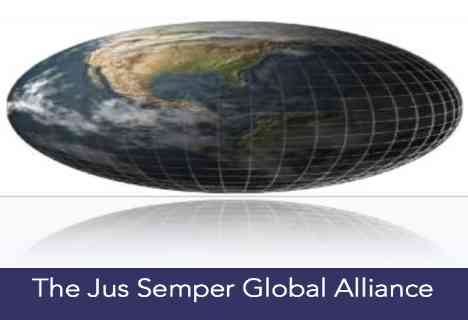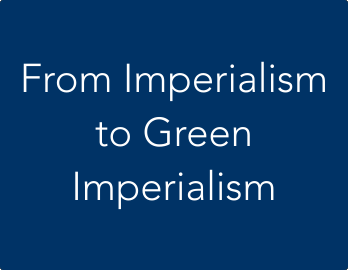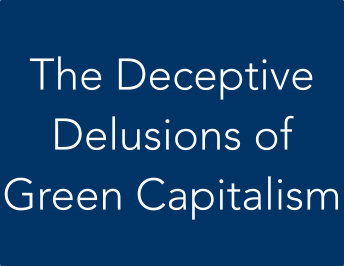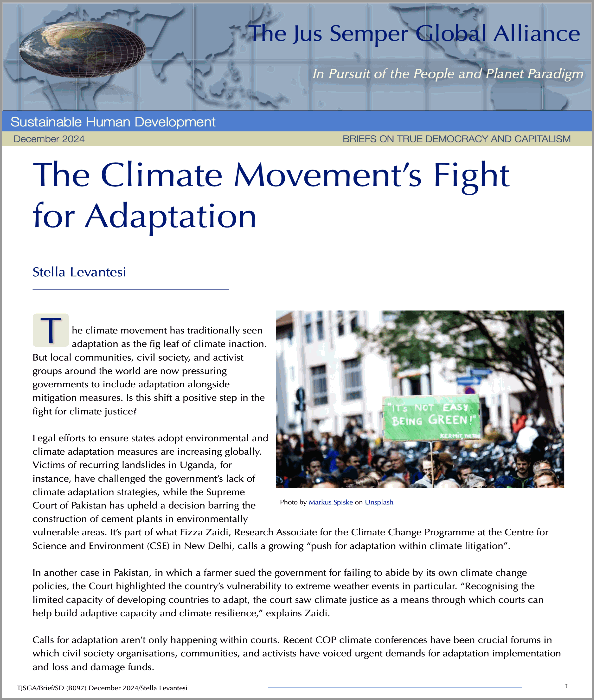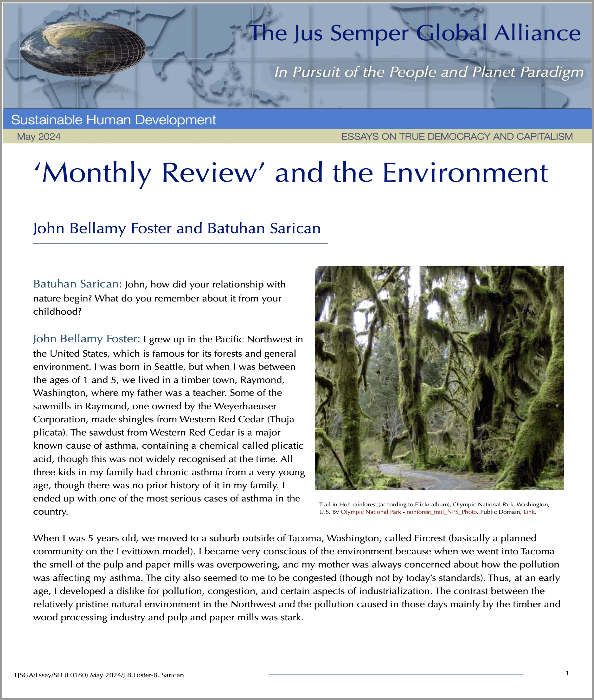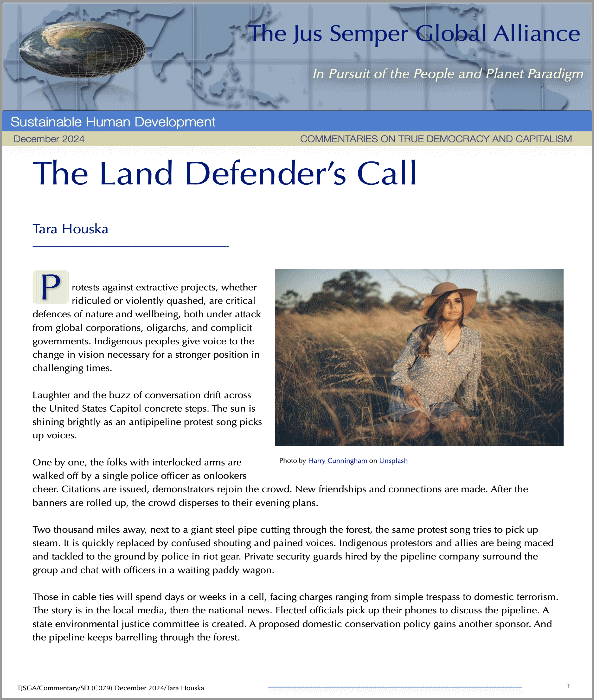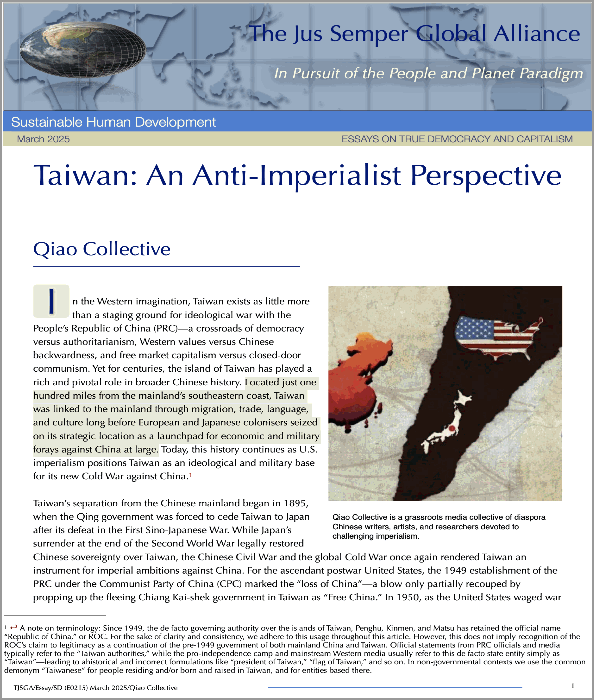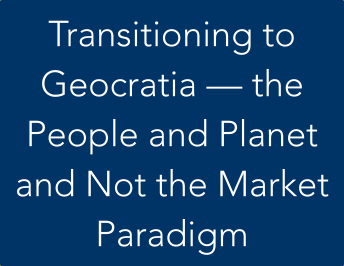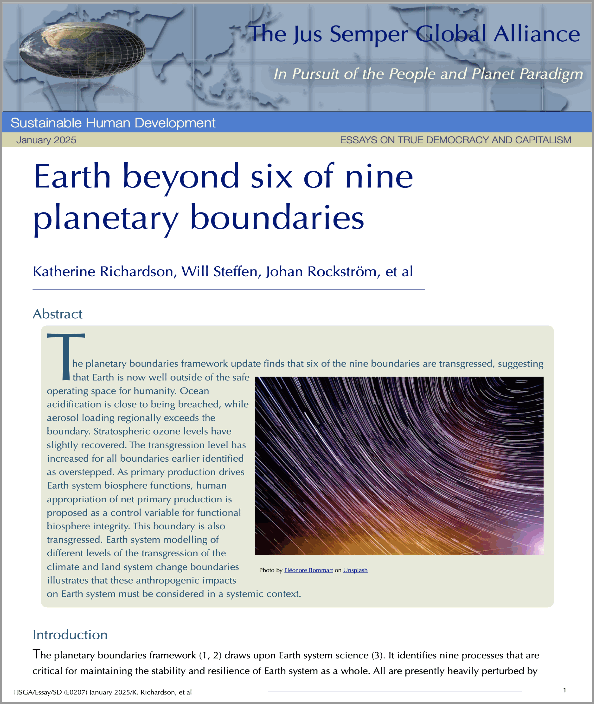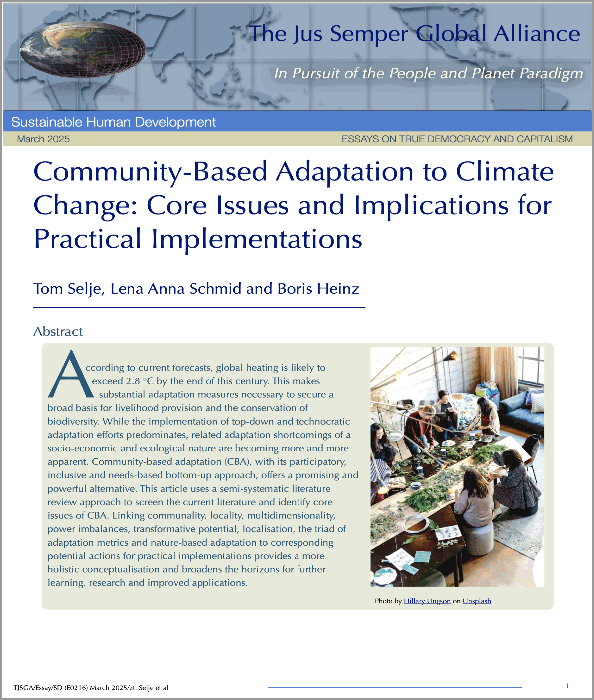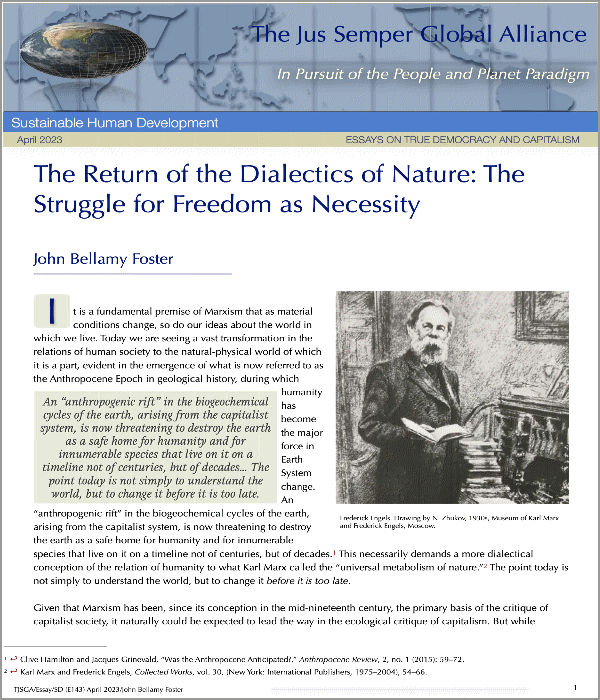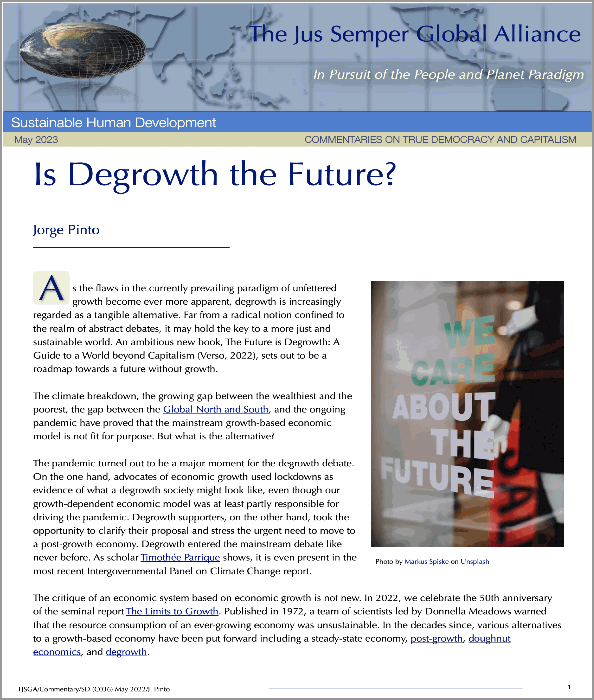Transitioning to Geocratia — the People and Planet and Not the Market Paradigm — First StepsParting from the fact that saving Planet Earth, our home, changes everything, we need to build a new ethos where the majority of humankind commits to a system whose only purpose is the pursuit of the welfare of people and Planet Earth. This requires that all Earth resources necessary for the enjoyment of life of all living things be managed to achieve true long-term sustainability. — Álvaro J. de Regil The Unbearable Unawareness of our Ecological Existential CrisisOver the past two years, the full report on Climate Change Mitigation by IPCC scientists, as well as research from other centres such as the Stockholm Resilience Centre, has consistently confirmed that we are on a doomsday trajectory. Unless we move rapidly in the opposite direction, the chances that we will face planetary catastrophes that seriously threaten the existence of life on our planet in the next twenty years are realistic and probable. Unsustainable capitalism keeps us deluded and largely unaware that we are on the brink of a serious existential risk. Therefore the great challenge is to provoke the awareness and critical thinking of ordinary citizens. Only a Citixens Revolution can stop our demise, but capitalism’s behemoth keeps people deceitful and mostly unaware of being on the verge of a catastrophic end. We must arouse Now! –– Álvaro J. de Regil Earth beyond six of nine planetary boundariesThe update of the planetary boundaries framework reveals that six of the nine boundaries have been transgressed, suggesting that the Earth is now outside the safe operating space for humanity. Ocean acidification is about to be exceeded, while aerosol loading exceeds the limit regionally. Stratospheric ozone levels have recovered slightly. The transgression level has increased for all boundaries previously identified as exceeded. Given that primary production drives the biosphere functions of the Earth system, human appropriation of net primary production is proposed as a control variable for the functional integrity of the biosphere. This boundary has also been transgressed. Modeling the Earth system with different levels of transgression of climate change and Earth system boundaries illustrates that these anthropogenic impacts on the Earth system must be considered in a systemic context. —Katherine Richardson et al Controversial Demographic Projections Under Climate Collapse in 2050 - South and Mesoamerica in a Global ContextThe corporate sector is building another aggressive re-engineering of global agrifood systems in South America and Mesoamerica. The region represents a pillar for global food security, warns the UN in the New Mission. Capitalist euphoria assumes 10 billion inhabitants by 2050. This is forging higher agricultural productivity, innovation, digitalisation and the expansion of standardised agriculture. Thus, they produce and market food destined for populations with some or enough consumption capacity, overconsumption and waste of food with equivalent carbon footprints. –– Nubia Barrera Silva The pressing priority of saving the AmazoniaThe world's most biodiverse region is threatened by deforestation levels close to the point of no return. Despite this, the countries involved failed to reach agreements at the last summit in Brazil in August. –– David Roca Basadre Safe and Just Earth System BoundariesHumanity is well into the Anthropocene, the proposed new geological epoch where human pressures have put the Earth system on a trajectory moving rapidly away from the stable Holocene state of the past 12,000 years, which is the only state of the Earth system we have evidence of being able to support the world as we know it. Seven of eight globally quantified safe and just Earth System Boundaries (ESB) and at least two regional safe and just ESBs in over half of global land area are already exceeded. We propose that our assessment provides a quantitative foundation for safeguarding the global commons for all people now and into the future. — Johan Rockström et al ‘The energy transition has not yet begun’Interview with Jean-Baptiste Fressoz (France, 1977), historian of science, technology, and the environment, and professor at the School for Advanced Studies in the Social Sciences in Paris. He has just published Without Transition: A New History of Energy (Seuil), which will be translated and published in Spanish by Arpa. He is also the co-author, with Christophe Bonneuil, of The Anthropocene Event: The Earth, History, and Us (Points Histoire) and The Joyful Apocalypse: A History of Technological Risk (Seuil). —Hervé Kempf Community-Based Adaptation to Climate Change: Core Issues and Implications for Practical ImplementationsAccording to current forecasts, global heating is likely to exceed 2.8 °C by the end of this century. This makes substantial adaptation measures necessary to secure a broad basis for livelihood provision and the conservation of biodiversity. While the implementation of top-down and technocratic adaptation efforts predominates, related adaptation shortcomings of a socio-economic and ecological nature are becoming more and more apparent. Community-based adaptation (CBA), with its participatory, inclusive and needs-based bottom-up approach, offers a promising and powerful alternative. This article uses a semi-systematic literature review approach to screen the current literature and identify core issues of CBA. ––Tom Selje et al Capitalism and Extreme Poverty: A Global Analysis of Real Wages, Human Height, Mortality Since the Long 16th CenturyThis paper assesses claims that, prior to the 19th century, around 90% of the human population lived in extreme poverty (defined as the inability to access essential goods), and that global human welfare only began to improve with the rise of capitalism. The rise of capitalism caused a dramatic deterioration of human welfare. In all regions studied here, incorporation into the capitalist world-system was associated with a decline in wages to below subsistence, a deterioration in human stature, and an upturn in premature mortality. –– Dylan Sullivan and Jason Hickel Marine plastic pollution as a planetary boundary threat – The drifting piece in the sustainability puzzleThe exponential increase in the use of plastic in modern society and the inadequate management of the resulting waste have led to its accumulation in the marine environment. There is increasing evidence of numerous mechanisms by which marine plastic pollution is causing effects across successive levels of biological organisation. This will unavoidably impact ecological communities and ecosystem functions. –– Patricia Villarrubia-Gómez, Sarah E. Cornell, Joan Fabres Post-growth: the science of wellbeing within planetary boundariesThere are increasing concerns that continued economic growth in high-income countries might not be environmentally sustainable, socially beneficial, or economically achievable. In this Review, we explore the rapidly advancing field of post-growth research, which has evolved in response to these concerns. The central idea of post-growth is to replace the goal of increasing GDP with the goal of improving human wellbeing within planetary boundaries. Key advances discussed in this Review include: the development of ecological macroeconomic models that test policies for managing without growth; understanding and reducing the growth dependencies that tie social welfare to increasing GDP in the current economy; and characterising the policies and provisioning systems that would allow resource use to be reduced while improving human wellbeing. —Giorgos Kallis et al Impact of Climate Change on Biodiversity and Implications for Nature-Based SolutionsThe Intergovernmental Panel on Climate Change (IPCC) provides regular scientific assessments on climate change, its implications, and potential future risks based on estimated energy matrixes and policy pathways. The aim of this publication is to assess the risks climate change poses to biodiversity using projected IPCC climate scenarios for the period 2081–2100, combined with key species-sensitivity indicators and variables as a response to climate change projections. —Cor A. Schipper et al Communicating with policy makers about climate change, health, and their intersection: a scoping reviewAmbitious policies are urgently needed to protect human health from the impacts of climate change. Civil society, including researchers and advocates, can help advance such policies by communicating with policy makers. In this scoping review, we examined what is known about effectively communicating with policy makers to encourage them to act on public health, climate change, or their nexus. Based on this literature, we have produced a list of strategic questions that communicators might wish to consider as they prepare to communicate with policy makers. —Joshua Ettinger et al Arghiri Emmanuel and Unequal Exchange: Past, Present, and Future RelevanceTo paraphrase Mao Zedong: Where do ideas come from? Do they drop from the sky? No, they come from social practice, the struggle for production, the class struggle, and scientific work. There is a close link between what goes on in the world, the project of classes and states, and theoretical and political debates. This is Arghiri Emmanuel’s life story, of which his theory of unequal exchange is a prime example. —Torkil Lauesen Value Transfer and Labour Arbitrage Based on Unequal Exchange: The Case of Mexico – United StatesUnequal exchange is a key concept in Marxist critiques of the capitalist global system, proposing that uneven development between the global core and periphery is driven by the core's retention of a substantial portion of value produced in the periphery. This occurs by establishing average global profit rates and international market prices across the global market despite stark wage disparities. This study highlights that wage disparities are crucial for monopoly capital accumulation, resulting in diminished wages and precarious social conditions in Mexico, with a labour value drainage of $135 billion dollars in 2023, representing 7.5% of its GDP. —Mateo Crossa Niell – Álvaro de Regil Castilla How much growth is required to achieve good lives for all?Some narratives in international development hold that ending poverty and achieving good lives for all will require every country to reach the levels of GDP per capita that currently characterise high-income countries. However, this would require increasing total global output and resource use several times over, dramatically exacerbating ecological breakdown. Furthermore, universal convergence along these lines is unlikely within the imperialist structure of the existing world economy. Here we demonstrate that this dilemma can be resolved with an approach rooted in needs-based analyses, increasing the specific forms of production necessary to improve capabilities and meet human needs at a high standard, while ensuring universal access to key goods and services through public provisioning and decommodification. —Jason Hickel / Dylan Sullivan Materialising the Revolution: The Movement Toward EcosocialismThank you for taking the time to do this interview. In my work on social justice, for many years I was primarily concerned with understanding and exposing the global exploitation of workers in the Global South through unequal exchange perpetrated by corporations through labour arbitrage. However, after reading much of what you have written this century, I have concluded that the planetary crisis we are experiencing as a result of dominant monopoly capital poses an imminent existential risk to human and non-human beings and all life at our home unless we urgently organise ourselves to force a radical paradigmatic shift. This new paradigm would replace capitalism with new ecosocialist communities whose only purpose is the pursuit of the well-being of people and the planet through a revolutionary movement. With this vision in mind, I would like to focus on how you envision moving from theory to the actual materialisation of arevolutionary movement that successfully transitionsto the ecosocialist paradigm. —John Bellamy Foster and Álvaro de Regil Castilla he War in Ukraine —A History: How the U.S. Exploited Fractures in the Post-Soviet OrderThe ongoing war between Ukraine and Russia has been driven by internal and external factors. Those factors constitute two blades of a scissors, and explaining the conflict requires taking account of both blades. The external factors center on post-Cold War U.S. geopolitical strategy and the concomitant U.S.-sponsored eastward expansion of the North Atlantic Treaty Organization (NATO). That expansion can only be understood by reference to the fractures (internal factors) created by the Soviet Union’s disintegration. The external factors reveal the role of the United States, which is implicated to the point of provoking the conflict and obstructing peace. —Thomas I. Palley Imperialism and WhiteSettler Colonialism in Marxist TheoryThe concept of settler colonialism has always been a key element in the Marxist theory of imperialism, whose meaning has evolved gradually over the past century and a half. Within what has become the dominant paradigm of settler colonialism, the approach to the Israeli occupation of Palestine is far removed from historical materialism. Rather than relying on a highly restrictive logic, Marxist analysis seeks to situate the reality of Israeli settler colonialism within a broader and more dynamic historical perspective that captures the complex and changing dialectical relationships between capitalism, class, and imperialism/militarism. —John Bellamy Foster Unequal exchange of labour in the world economyResearchers have argued that wealthy nations rely on a large net appropriation of labour and resources from the rest of the world through unequal exchange in international trade and global commodity chains. Here we assess this empirically by measuring flows of embodied labour in the world economy from 1995–2021, accounting for skill levels, sectors and wages. We find that, in 2021, the economies of the global North net-appropriated 826 billion hours of embodied labour from the global South, across all skill levels and sectors. The wage value of this net-appropriated labour was equivalent to €16.9 trillion in Northern prices, accounting for skill level. This appropriation roughly doubles the labour that is available for Northern consumption but drains the South of productive capacity that could be used instead for local human needs and development. While Southern workers contribute 90% of the labour that powers the world economy, they receive only 21% of global income. —Jason Hickel et al Crisis or collapse? Overshoot and degrowthThe delicate state of the Earth system has been described as a crisis or a set of crises: “ecological crisis,” “climate crisis,” “biodiversity crisis.” Our ecosocial situation has also been described as a crisis. The answer to the dilemma between crisis and collapse could ultimately lie in the combination of the incontrovertible diagnosis of serious ecological overshoot and the urgent need to decelerate—in order to hopefully prevent the consequences of overshoot from forcing a traumatic deceleration. — Asier Arias Demographic Delusions: World Population Growth Is Exceeding Most Projections and Jeopardising Scenarios for Sustainable FuturesThe size of the world population has profound implications for the demand for food, energy, and resources, changes in land use, and greenhouse gas emissions. This study examines why most population projections have underestimated global population growth and the implications for the actions needed to achieve sustainable societies. —Jane N. O'Sullivan Overconfidence in climate overshootGlobal emission reduction efforts remain insufficient to achieve the Paris Agreement temperature goal. This makes the systematic exploration of so-called overshoot pathways, which temporarily exceed the global warming limit set before reducing temperatures to safer levels, a priority for science and policy. Only a rapid reduction in emissions in the short term is effective in reducing climate risks. — Carl-Friedrich Schleussner et al Advancing the Welfare of People and the Planet with a Common Agenda for Reproductive Justice, Population, and the EnvironmentDriven by rising consumption and population, human demands are depleting natural resources essential to human life, damaging farmland, freshwater supplies, fisheries, and forests, and driving climate change. This report offers a strategy to protect natural systems and improve well-being by expanding reproductive justice, a concept that includes family planning, reproductive health, and gender equity, and the preservation of the environment and climate. —J. Joseph Speidel and Jane N. O'Sullivan Just population policies for an overpopulated worldAfter decades of neglect, environmentalists are once again becoming aware of the need to limit the number of human beings. But, like Rip Van Winkle, we find that the world has changed while we were asleep. There are now billions more people, hundreds of millions of new members of the global middle class, and high consumption among the rich. Meanwhile, the planet has become warmer, more polluted, more domesticated, and more impoverished. This article specifies what just population policies look like for an overpopulated world: one where most national populations must decrease significantly to create sustainable societies, and where failure to do so threatens environmental disaster for humans and the rest of life on Earth. — Philip Cafaro Imperialism in the Indo-Pacific — An IntroductionAs respected international relations specialist David C. Kang has argued in American Grand Strategy and East Asian Security in the Twenty-First Century (2017) and other works, there has been a general decline in military spending as a percentage of GDP in the largest East Asian states over the past two decades. Taking the eleven largest states, it has fallen to approximately half of what it was two and a half decades ago, declining from an average of 3.35% in 1990 to an average of 1.8% in 2015, a trend that has continued. This objectively points to a growing, rather than declining, sense of national security in the region. It is this climate of peace that the United States threatens to disrupt, not for the sake of East Asia, but with the aim of preserving its preeminence as a world power at all costs. —John Bellamy Foster and Brett Clark Sustainability transitions in consumption-production systemsThe need for faster and deeper transitions toward more sustainable development pathways is now widely recognized. How to meet that need has been at the center of a growing body of academic research and real-world policy implementation. This paper presents our perspective on some of the most powerful insights that have emerged from this ongoing work. In particular, we highlight insights on how sustainability transitions can be usefully conceptualised, how they come about and evolve, and how they can be shaped and guided through deliberate policy interventions. —Frank W. Geels, Florian Kern and William C. Clark The Perpetual StormThere is a vast and fatal lack of awareness of the reality we are about to face on the coastline that gave birth to modern civilisation. I do not like writing this. Nor do I like, at times, knowing what I know. However, I like it even less, much less, that, knowing what I know, more people are not aware of it, because what is at stake is absolutely incalculable. When so much is at stake, the comfortable silence of those who know can be as eloquently treacherous as the worst of lies. —Juan Bordera “The climate movement has to be part of a broader anti-austerity movement”Beyond carbon footprints, waste management and ‘green’ policies, responsibility for the climate crisis lies with a capitalist minority that leaves little room for action to reverse its course. This is the central thesis of the latest essay by Matthew T. Huber (Chicago, 1970), professor of geography at the Maxwell School of Citizenship and Public Affairs at Syracuse University. An analyst of the relationship between economics and geography with capitalism, climate policies and social justice, he has just presented The Future of Revolution: Climate Change and the Quest for a Global Democratic Insurrection (Errata Naturae), in which he proposes a reformulation of solidarity, the recovery of public ownership of key sectors (especially energy) and the decommodification of the needs of the working class. —Ester Peñas The Ecological Rift in the Anthropocene—A conversation with John Bellamy Foster on ecology, ecological imperialism, and potential solutions to the ongoing planetary crisis. —John Bellamy Foster, Fabio Querido, Maria Orlanda Pinassi, and Michael Löwy The MAGA Ideology and the Trump RegimeOne week after the January 20, 2025, inauguration of Donald Trump in his second stint as U.S. president, Matthew J. Vaeth, acting director of the Office of Management and Budget (OMB), issued a memorandum to federal departments and agencies ordering a temporary pause of agency, grant and loan, and financial assistance spending throughout the federal government. This was the opening shot in what the right has called the “Cold Civil War.” In line with all movements in the fascist genus, the current regime will inevitably betray its mass MAGA supporters on the radical right, seeking to relegate them to a more and more subservient and regimented role and negating any policies in fundamental conflict with its capitalist-imperial ends. —John Bellamy Foster Global synthesis and regional insights for mainstreaming urban nature-based solutionsNature-based solutions (NbS) have emerged as a key strategy for sustainably addressing multiple urban challenges, with rapidly increasing knowledge production requiring synthesis to better understand whether and how NbS work in different social, ecological, economic, or governance contexts. Insights in this Perspective are drawn from a thematic review of 61 NbS review articles supported by an expert assessment of NbS knowledge in seven global regions to examine key challenges, fill gaps in Global South assessment, and provide insights for scaling up NbS for impact in cities. —Timon McPhearson et al Einstein’s “Why Socialism?” and ‘Monthly Review’: A Historical IntroductionAlbert Einstein, the world's most famous theoretical physicist and its most celebrated scientist, had fled Germany after the rise of Adolf Hitler, emigrating to the United States in 1933, where he became a citizen in 1940. However, for J. Edgar Hoover's FBI, Einstein remained a dangerous and anti-American figure who threatened the internal security of the United States by his very presence in the country. His 1949 publication of an article entitled ‘Why Socialism?’ for the new magazine Monthly Review: An Independent Socialist Magazine was thus seen by the FBI as direct confirmation of his strong ‘Communist sympathies.’ —John Bellamy Foster The Non-Aligned Movement Then and NowFaced with the nuclear threat and bipolarity of the Cold War, the non-aligned movement has since the 1960s put forward an alternative model based on decolonial solidarity and a fairer global trading system, but ultimately failed to materialise its most far-reaching economic proposals. Today, non-alignment narratives are revived by the BRICS and sometimes by EU ambitions, but a just multipolar world should prioritise environmental cooperation and have the Global South at its centre. An interview with sociologist Paul Stubbs. —Green European Journal | ||
Value Transfer and Labour Arbitrage Based on Unequal Exchange: The Case of Mexico – United States
Unequal exchange is a key concept in Marxist critiques of the capitalist global system, proposing that uneven development between the global core and periphery is driven by the core's retention of a substantial portion of value produced in the periphery. This occurs by establishing average global profit rates and international market prices across the global market despite stark wage disparities. Today, global trade inequality and value transfers largely stem from multinational corporations relocating production to periphery countries, where similar productivity levels are achieved, butwage disparities only grow. These terms of trade underscore the supremacy of the law of capitalist accumulation over a monopoly driven global economic order. Mexico's export manufacturing sector illustrates this pattern, with productivity levels comparable to those in the United States yet a widening wage gap. This study highlights that wage disparities are crucial for monopoly capital accumulation, resulting in diminished wages and precarious social conditions in Mexico, with a labour value drainage of $135 billion dollars in 2023, representing 7.5% of its GDP.
.______________________________________________
Research and analysis to provoke public awareness and critical thinking
We contribute to the liberalisation of the democratic instituions of society, for they have been captured by the owners of the market. They work in tandem with their market agents, who, posing as public servants, are entrenched in the halls of government. The political class has betrayed its public mandate and instead operates to impose a marketocratic state to maximise the shareholder value of the institutional investors of international financial markets. They own the global corporations and think they own the world on behalf of their very private interest.
Our spheres of action: true democracy – true sustainability – living wage – basic income – inequality – ecological footprint – degrowth – global warming –human development – corporate accountability – civil, political, economic, social, cultural and environmental rights, responsible consumption, sustainable autonomous citizen cells...

Parting from an ethos of true democracy and true sustainability, We, the citizenry, work to advance the paradigm whose only purpose is to go in pursuit of the welfare of People and Planet and NOT the market.
- TJSGA is member of:
- © The Jus Semper Global Alliance
| Home |
Overpopulation and sustainability
The progressive degradation of the environment
The deceptive dellusions of Green Capitalism
Textile sweatshops in the U.S.
Sustainable Wellbeing
Urban Commons
The Sixth Mass Extinction
Sustainble prosperity starts with reimagining education
Life beyond capital
Lost paradise? The cage of consumerism
Wellbeing matters
Speculative and parasite capital
The dispossessed

The Dialectical Ecologist: Richard Levins and the Science and Praxis of the Human-Nature Metabolism
If reason is a natural characteristic of human beings, is it not of nature?
—Yrjö Haila and Richard Levins
Richard Levins, as noted agroecologist and mathematical ecologist John Vandermeer has observed, “was and remains ‘legendary’ in ecology.” Within ecological science itself, Levins’s contributions are vast and paradigm shifting. At the same time, Levins’s contributions to science and critical thought far transcended his forays into mathematical ecology, as he engaged ecology in its widest dimensions including population ecology, ecological systems analysis, evolutionary processes, the philosophy and history of science, agroecology, ecodevelopment, socioecological planning, environmental history, public health, Marxian ecological theory, and ecosocialism—all of which for him, taken together, constituted the truth as the whole.
At the root of all of Levins’s thinking, from the days of his youth to his work as a mature ecological scientist, was a conception of the dialectics of nature and society drawn from such thinkers as Karl Marx, Frederick Engels, V. I. Lenin, J. D. Bernal, J. B. S. Haldane, Joseph Needham, Christopher Caudwell, Marcel Prenant, Ivan Ivanovich Schmalhausen, and C. H. Waddington. As he cogently observed, “perhaps the first investigation of a complex object as a system was the masterwork of Karl Marx, Das Kapital,” which explored both the economic and ecological bases of capitalism as a system.4 Marx’s materialist dialectics extended to not only the political-economic critique of capitalism and the argument for socialism on that basis, but also contributed to a dialectical naturalism that encompassed the ecological connections/contradictions of humanity and the earth, necessitating social change.
_________________________________





From Nord Streamto Iran:the geopoliticsof anempirein decline
Suicidal Logic — US fracking can only survive if the price of oil rises significantly. And that depends, to a large extent, on the decisions made by Tehran.
Oil is running out, and with it, the fiction of an empire sustained by energy revenues is also running out. Specifically, fracking – the technique that allowed the United States to become a net exporter of hydrocarbons – is beginning its decline. Washington knows this and is willing to do whatever it takes to stretch that energy supremacy for a few more years. That is why the attack on Iran is not a slip-up, but a strategic move: they need oil prices to rise so that fracking becomes profitable again, even if that means setting the Middle East on fire. Because it is not about winning, but about not sinking just yet.
______________________________________________
Samir Amin on the Theory of Multipolarity
It is almost universally recognised today that we are living in a multipolar world, symbolised by the continuing decline of U.S. hegemony; the economic stagnation of the imperial triad of the United States, Europe, and Japan; and the rise of the BRICS (Brazil, Russia, India, China, and South Africa). But the historical and theoretical significance of this is in dispute. The foremost theorist of multipolarity was Samir Amin, through his concept of "delinking," which he developed throughout his career. For Amin, the struggle against imperialism required a delinking from the law of value on the world level centred in Washington, London, Paris, Berlin, and Tokyo, and its replacement by a more "polycentric" or "multipolar" world order, in which nations in the periphery of the system could reorient their economies toward their own nation-based value systems, thereby meeting their own internal developmental needs. This would then allow them to move away from the current "disarticulated" development under imperialism toward a more "autocentric," or self-directed, development.
Amin's notion of delinking has often been misconstrued as an argument for economic autarky, something he strongly rejected. Rather, delinking is conceived in his analysis as a relational category directed at a complex and changing historical reality. It does not mean withdrawal from the world economy, which he said would be like moving "to the moon," but rather finding a way to sever connections with the main mechanisms of imperial dominance. This takes on complementary meanings at different levels.
______________________________________________
Globalisation, the introverted left, and the far right that has just discovered the world
Neoliberal globalisation is mortally wounded, as evidenced by the protectionist policies of the Trump administration. In its day, globalisation had the virtue of replacing the Cold War with trade wars: the conflict between countries was transformed into economic competition between large companies within a framework of ‘free’ trade.
The anti-globalisation movement emerged at that time to denounce the fact that large corporations and international banks were becoming a de facto power above states. Anti-globalisation, later called alter-globalisation, proposed the union of social organisations worldwide under the umbrella of solidarity, not charity but realism: in a world without borders, struggles had to be global. The successes of alter-globalisation were meagre: it failed to convince the masses of the need for solidarity-based consumption.
Years later, the slogans of alterglobalisation were swallowed up by capitalism and turned into consumer goods. Food sovereignty and agroecology ended up becoming the gourmet ‘eco’ of large supermarkets. While capitalism swallowed up all the symbols of alterglobalisation, the most radical left (in the good sense of the word, meaning bold and consistent) took refuge more and more in the small, the local and the personal. It is as if they had assumed that the world can no longer be changed and that the most they can do is to build a community refuge where they can experiment with small, caring and sustainable societies while they wait for the system to collapse.
It is therefore urgent that the most committed left-wing forces return to the arena of political confrontation and offer a coherent vision of the big issues. It is urgent to recover the niche of political thought left vacant when alter-globalisation weakened. Even if we feel powerless in the face of global problems and do not even know how to “act locally”, we should not lose sight of “thinking globally”, because never before in human history have we had so many global problems as we do now.
______________________________________________

This work is licensed under a Creative Commons Attribution-NonCommercial-NoDerivatives 4.0 International License.

Capitalist reforms and extreme poverty in China: unprecedented progress or income deflation?
It is widely believed that China's socialist economy had relatively high rates of extreme poverty while the capitalist reforms of the 1980s and 1990s delivered rapid progress. This narrative relies on World Bank estimates of the share of people living on less than $1.90 a day (2011 PPP), which show a sharp decline from 88 per cent in 1981 to zero by 2018. However, the World Bank’s poverty line has been critiqued for ignoring variations in the actual cost of meeting basic needs. In this paper we review data published by the OECD on the share of people unable to afford a subsistence basket. These estimates indicate that from 1981 to 1990, when most of China’s socialist provisioning systems were still in place, the country’s extreme poverty rate was on average only 5.6 per cent, substantially lower than in capitalist economies of comparable size and income at the time: 51 per cent in India, 36.5 per cent in Indonesia, and 29.5 per cent in Brazil. China's comparatively strong performance is corroborated by data on other social indicators. Moreover, extreme poverty in China increased during the capitalist reforms of the 1990s, reaching a peak of 68 per cent,as privatisation inflated the prices of essential goods and thus deflated the incomes of the working classes. These results indicate that socialist provisioning policies can be effective at preventing extreme poverty, while market reforms may threaten people's ability to meet basic needs.
__________________________________
China's "Triple Revolution Theory" and Marxist Analysis
In what is known as the New Era, beginning in 2012 with the rise of Xi Jinping as chairman of the Communist Party of China (CPC) and president of the People’s Republic of China (PRC), there has been a steady advance of the Sinicisation of Marxist theory and of the concept of socialism with Chinese characteristics, spreading to all aspects of society and adopted as a governing principle for China as a whole. This transformation is not, however, seen as a sharp break with the past, but as a further progression of the Chinese Revolution, as symbolised by its three paramount leaders over its history, Mao Zedong, Deng Xiaoping, and Xi Jinping, symbolising the periods of the Revolutionary Seizure of Power, Revolutionary Reform (or Reform Revolution), and the New Era, now seen as representing the period of Transitional Revolution aimed at completing the revolution. The call to “carry the revolution to its completion,” which was first introduced by Mao, was taken up again by Xi in 2016, and in the last several years has been a persistent theme in his speeches, and in the longer-range strategies the CPC has been promoting. It thus represents a new phase in the Chinese Revolution, which recently celebrated in seventy-fifth anniversary.
These shifts in the historical progression of the Chinese Revolution have led to various attempts to theorize the three stages of the revolution. Here Cheng Enfu and Yang Jun provide what they call “Triple Revolution Theory.” Their article is a product of the Sinicisation of Marxism and is primarily written for a Chinese audience and for Marxists worldwide who have been following the progress of the Chinese Revolution. Since their argument is both logical and historical in character, while also depicting various alternative points of view, it should be readily understandable to patient and attentive readers. Nevertheless, we encourage MR readers who find the journey labourious to leap to the end, namely the conclusion in part IV, since this addresses what “carrying the revolution to completion” really means in the view of these authors. Having done so, it will be possible to examine their whole argument from beginning to end, with new and deeper insights into the evolution of Chinese Marxist thought in the present as history.
—The Editors
________________________________
“The history of capitalism is a history of recurring genocides”
Interview with Jason W. Moore, historian and geographer
Talking to Jason W. Moore (Oregon, 1971) means talking about the Capitalocene, a concept he proposed to ‘ridicule the authoritarian thinking that dates back to Malthus in the late 18th century,’ where overpopulation was the source of inequality. For the historian, geographer and professor of sociology, climate change is the responsibility of the capitalist class and the 150 transnational corporations responsible for more than 70% of global carbon and greenhouse gas emissions since 1850. The climate crisis, he concludes, is a labour issue, a class war.
In this interview, Moore also develops the idea of “cheap nature” and “attempts from above to devalue human life”. He also analyses the genocide in Gaza– “unique, but not exceptional” – and provides key tools for organising anti-systemic movements that can respond to capitalism in crisis.
______________________________________________
Immanuel Ness: “Neoliberal capitalism in its current form cannot survive without migration”
Immanuel Ness, author of the book ‘Migration as Economic Imperialism’, explores the phenomenon of migration around the world as another element of capitalist imperialism
Whether it is another story about the tragedy of a capsized boat or another day of riots in France, the protagonists are always the same: immigrants. In the first case, they are victims, and in the second, they are unwanted members of society. But what they share is the dehumanisation they suffer both in the media and in the opinion of a section of the public, a sentiment that is increasingly being used for political and electoral purposes. The goal: to hide real problems and change something so that nothing changes.
Despite its prominent place in everyday political and social life, few studies attempt to investigate and understand this phenomenon. One exception is Professor Immanuel Ness of the Department of Political Science at the City University of New York, who has just published the results of his research on migration, in which he explores the links between the socio-economic needs of rich countries and the problems of survival in poor countries.
We had the opportunity to speak with Professor Ness about the conclusions of his work, Migration as Economic Imperialism: How International Labour Mobility Undermines Economic Development in Poor Countries (2023, Cambridge, UK: Polity), to try to understand the role that migration plays in our society and how it impacts us.
__________________________________

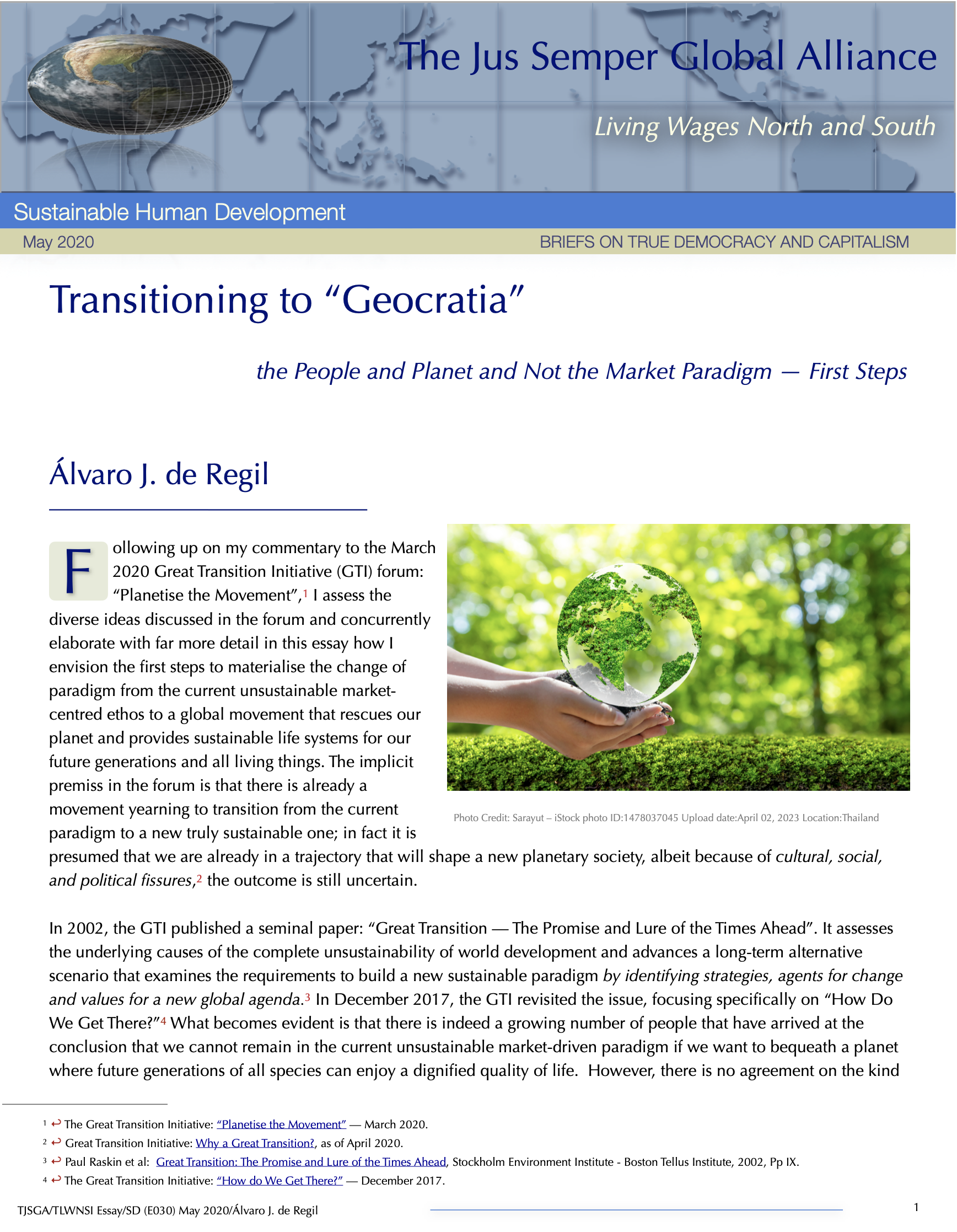
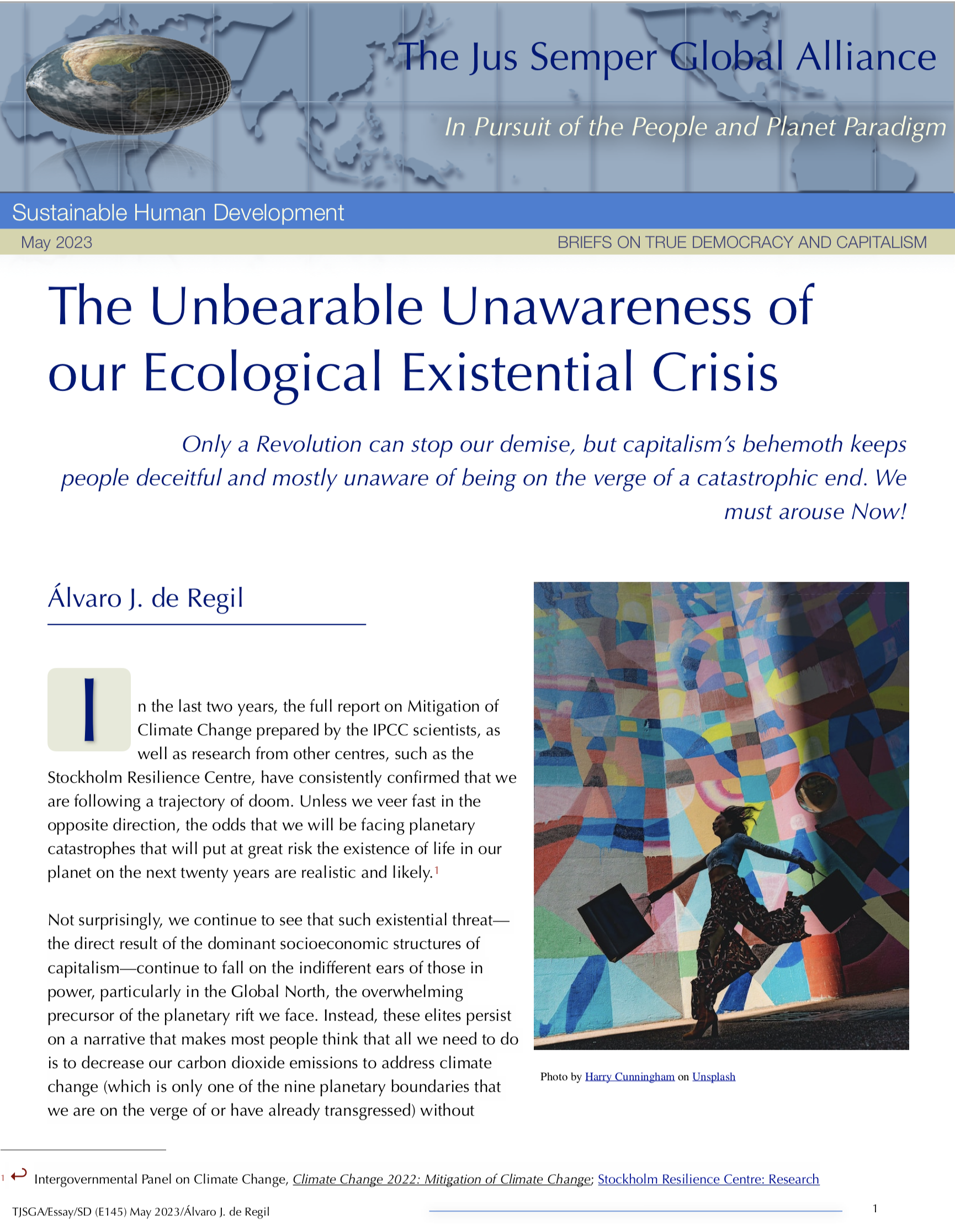
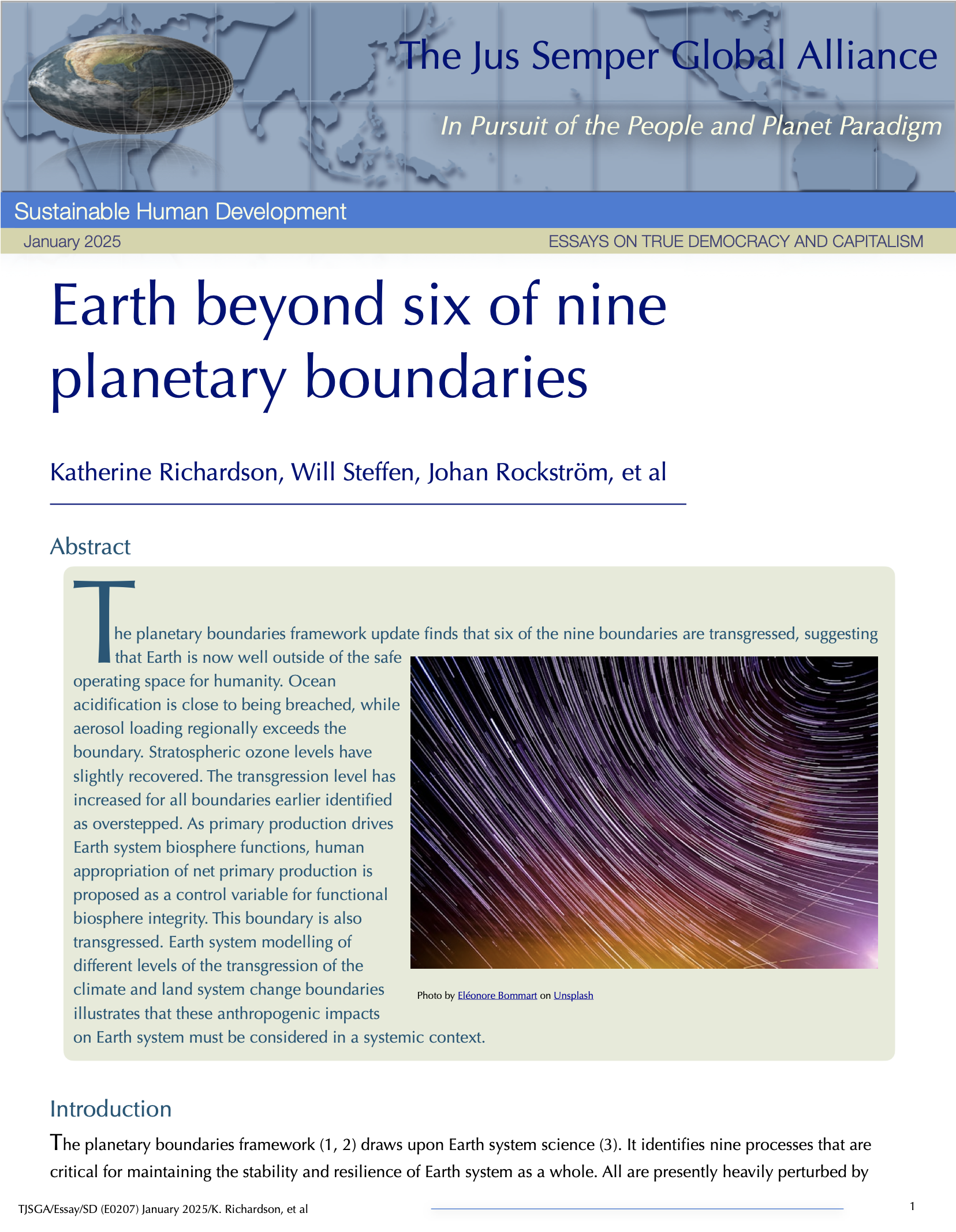
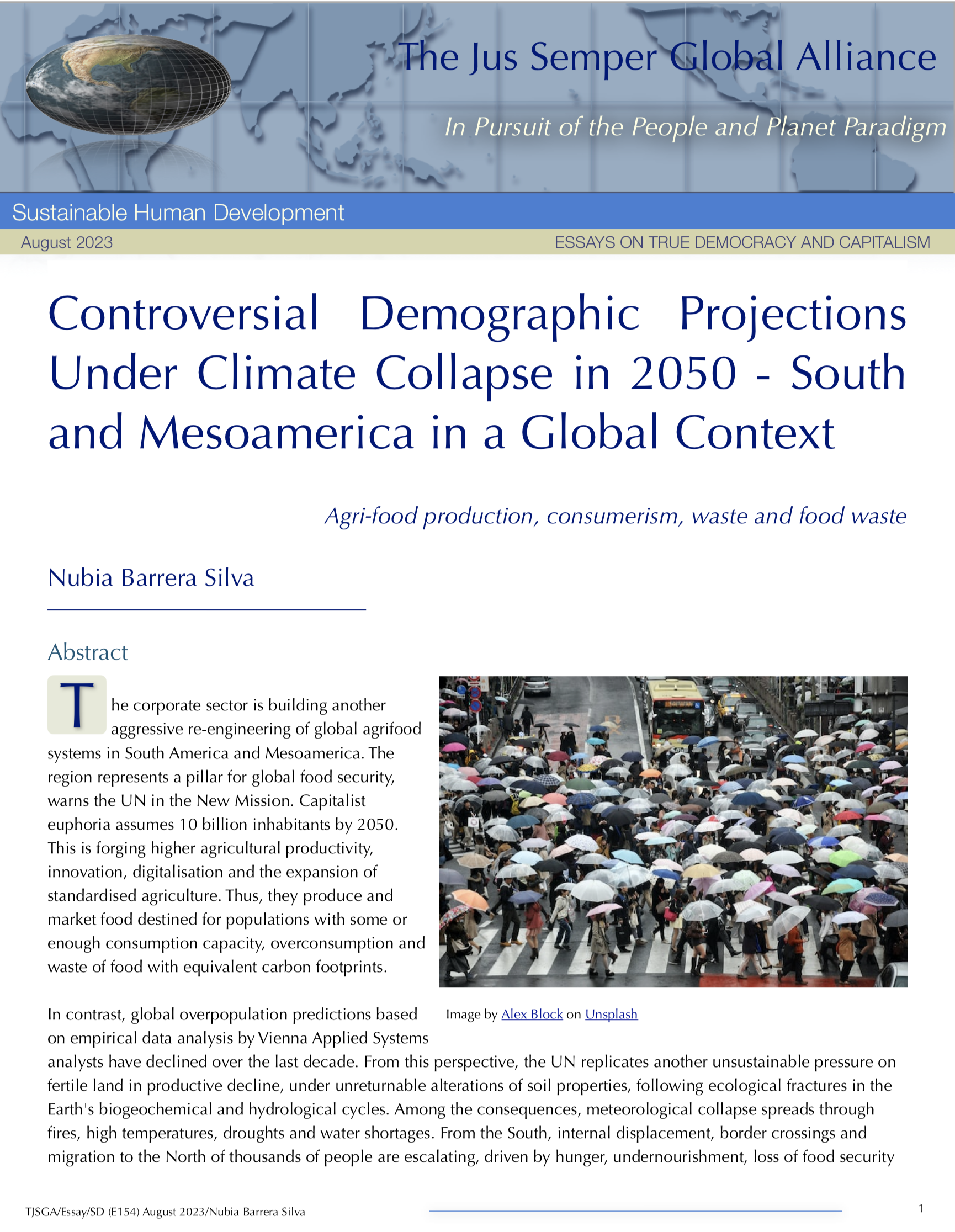
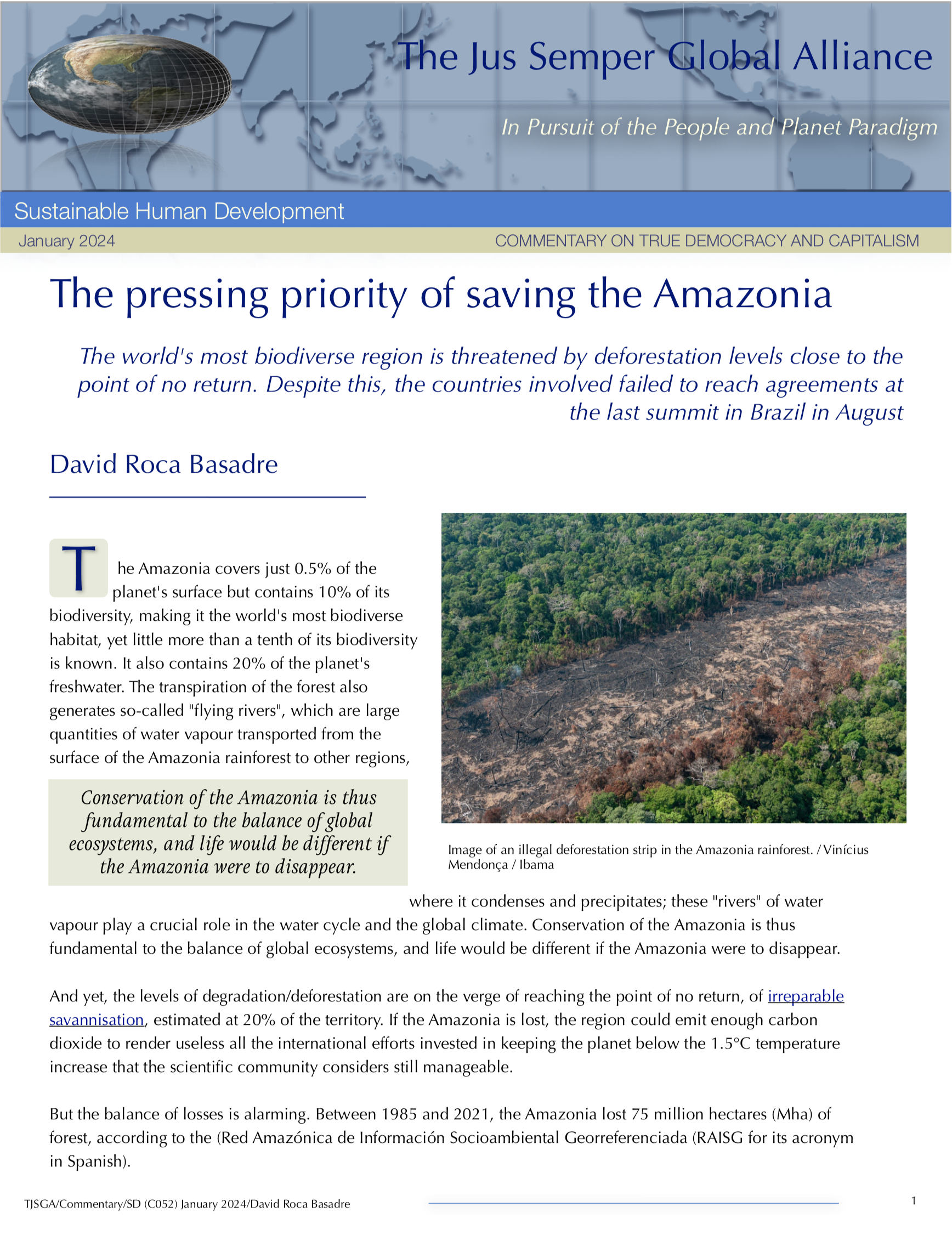
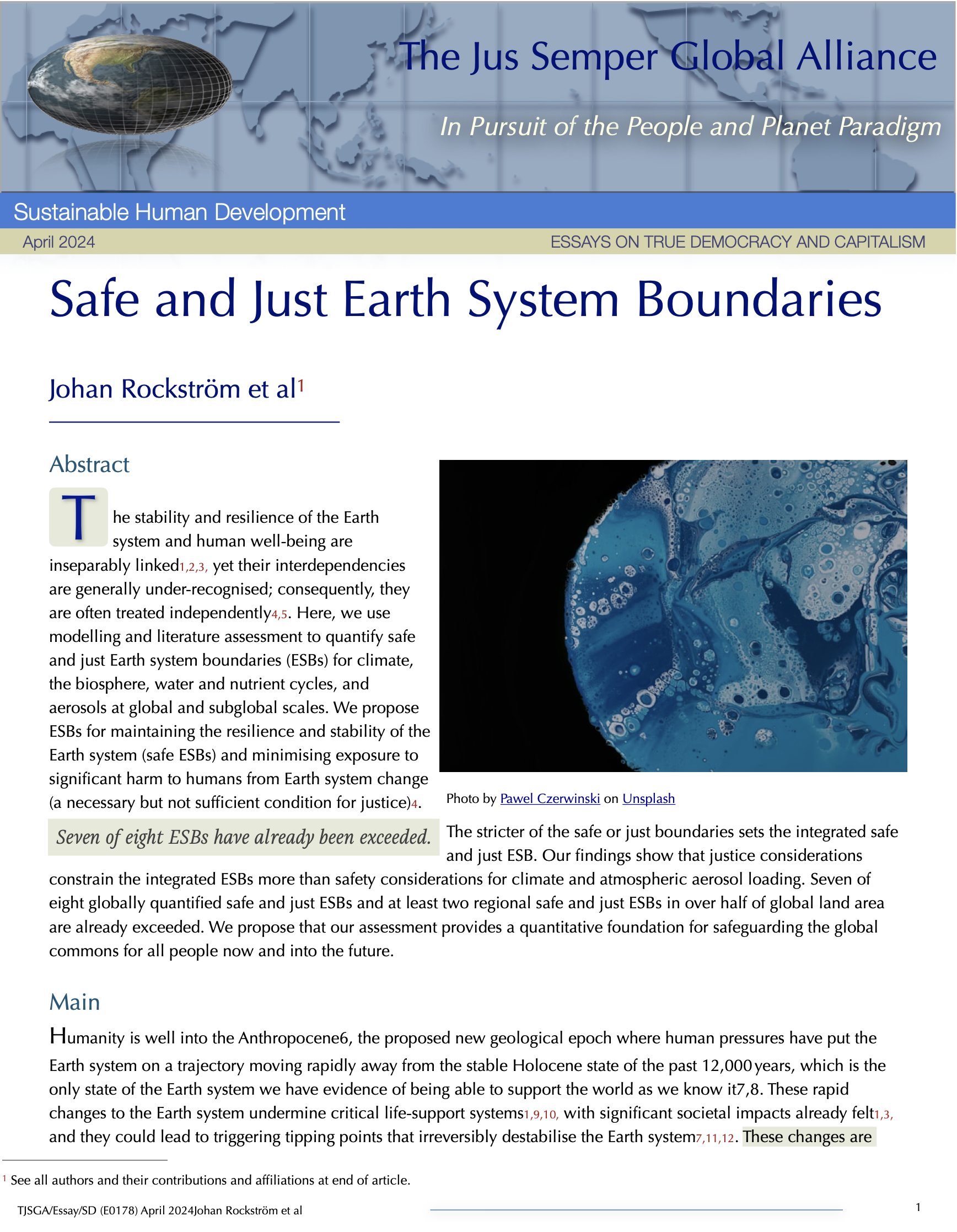
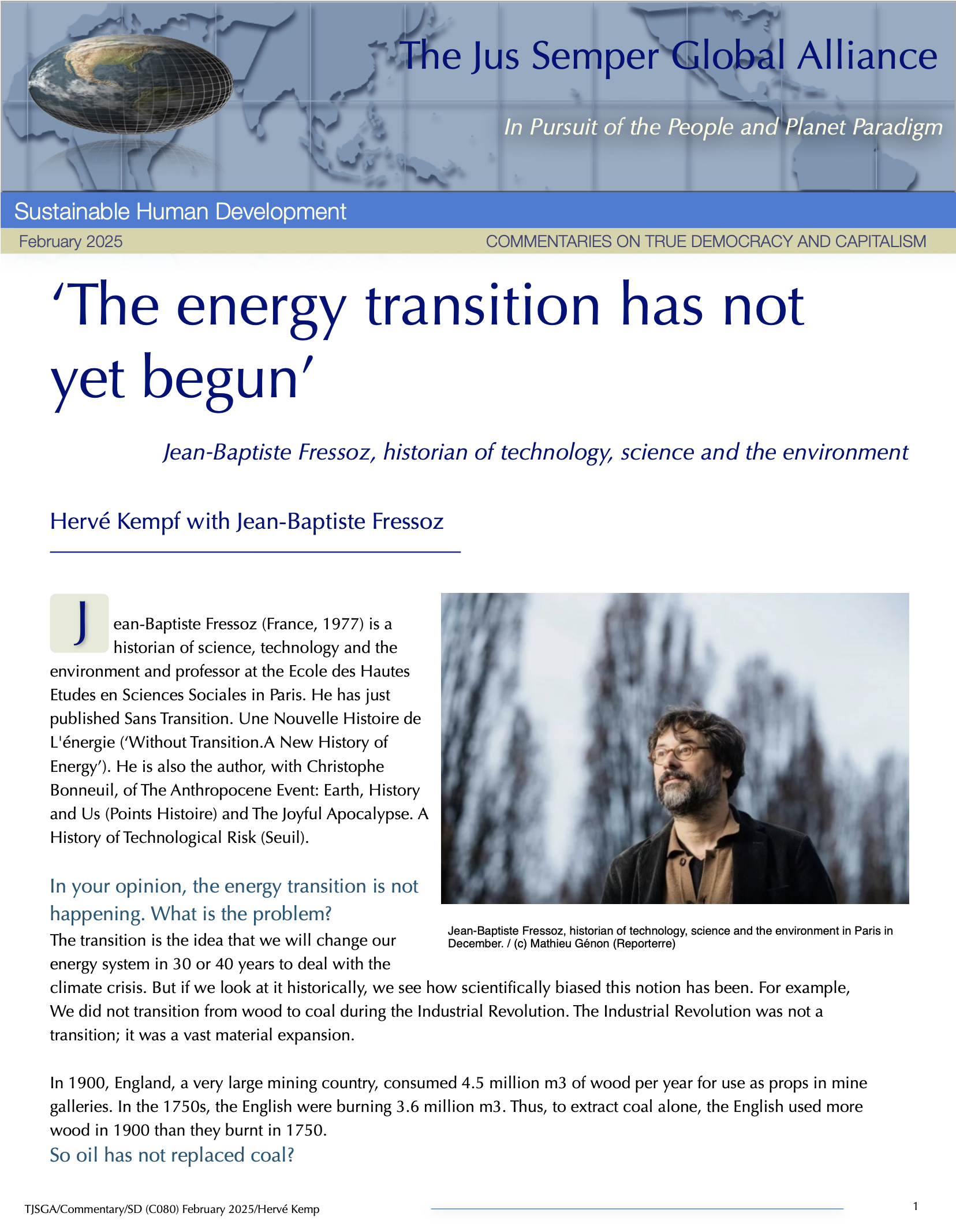
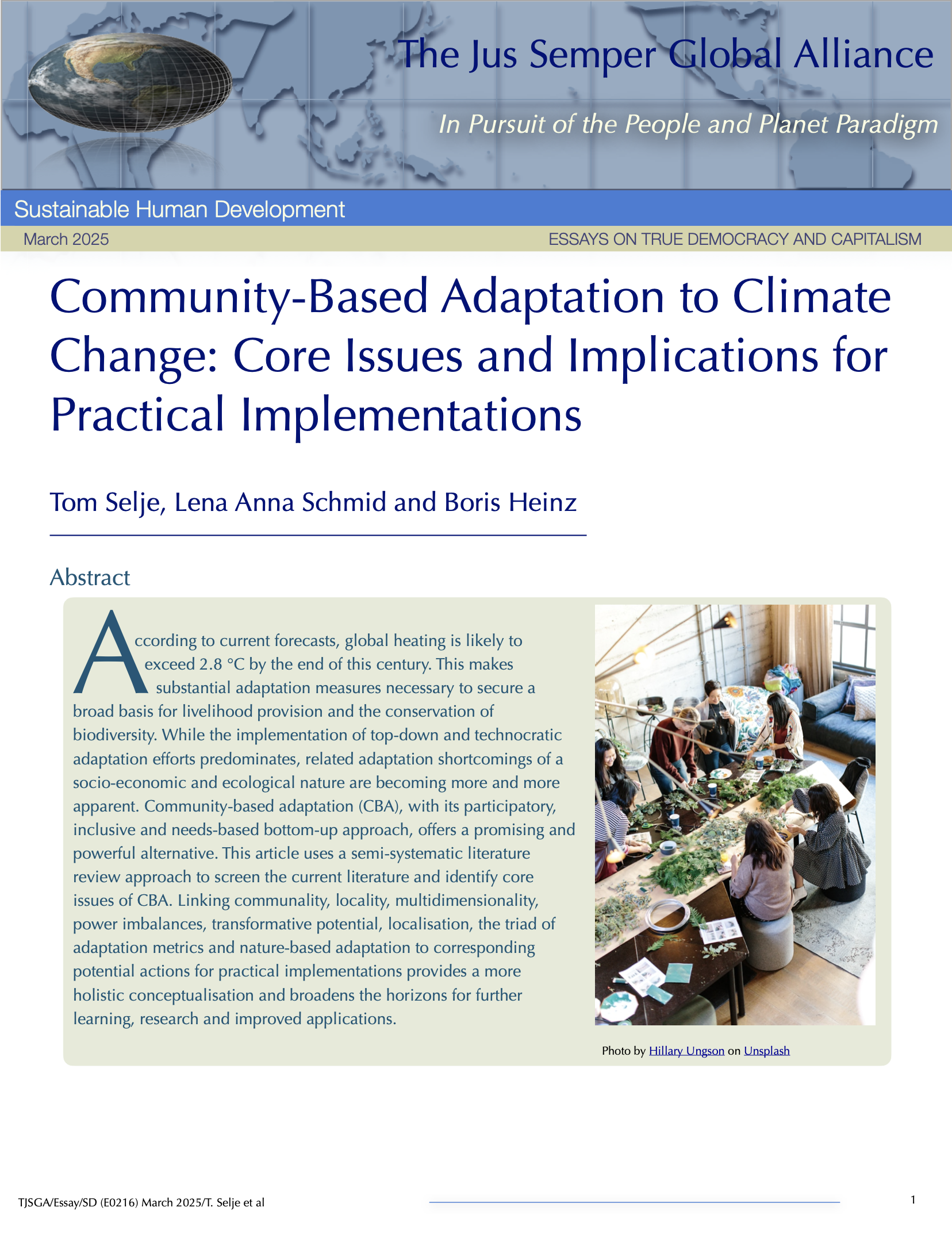
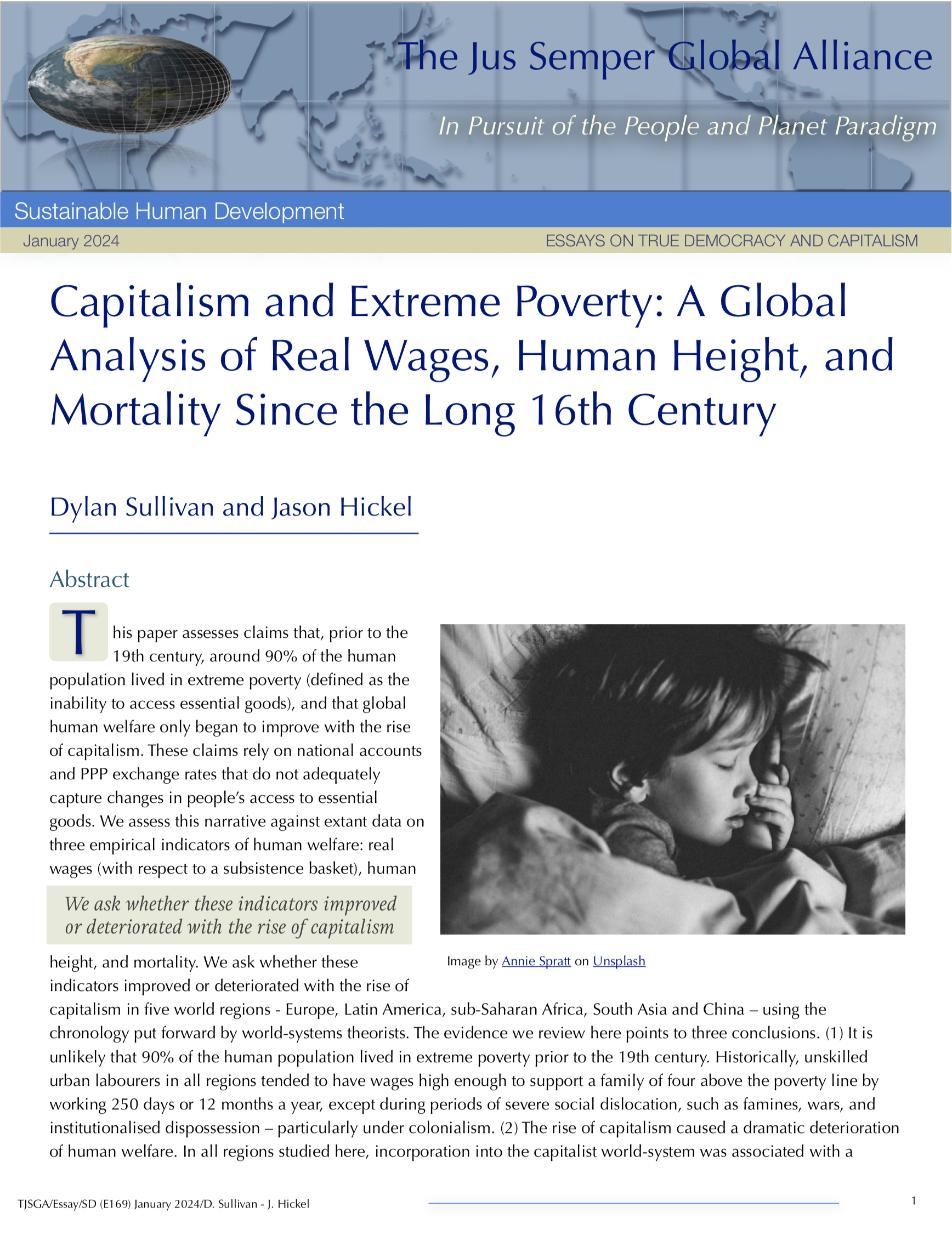
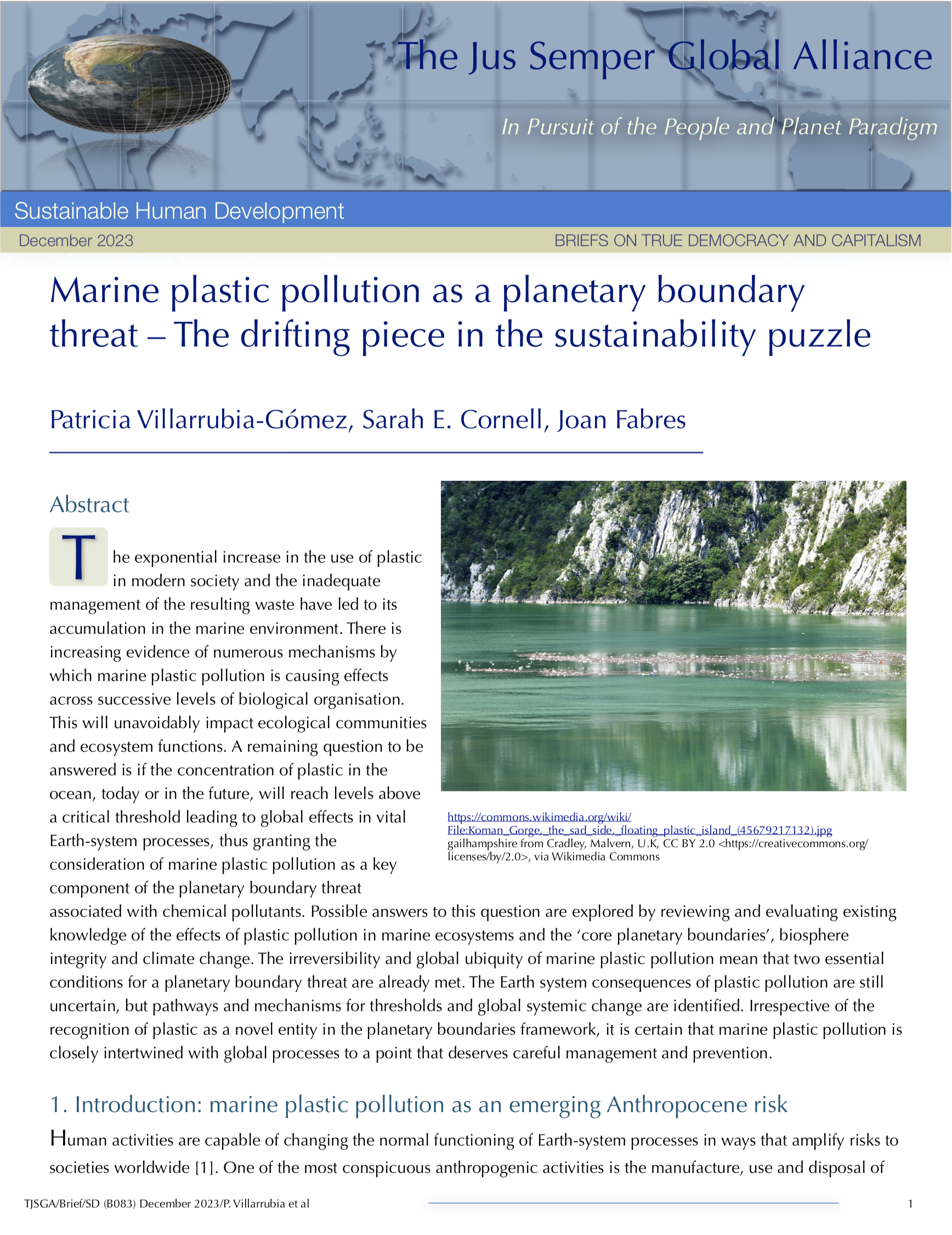
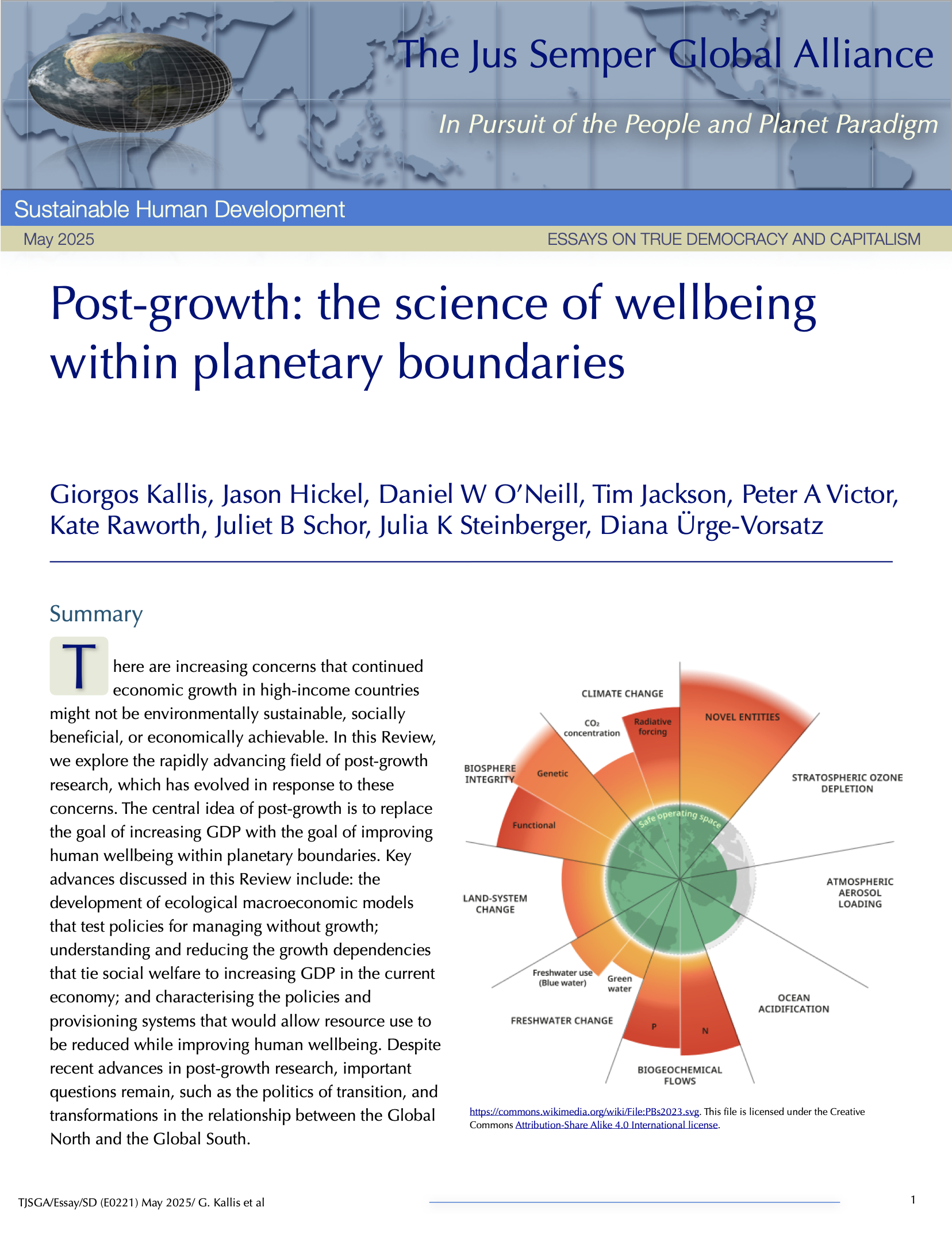
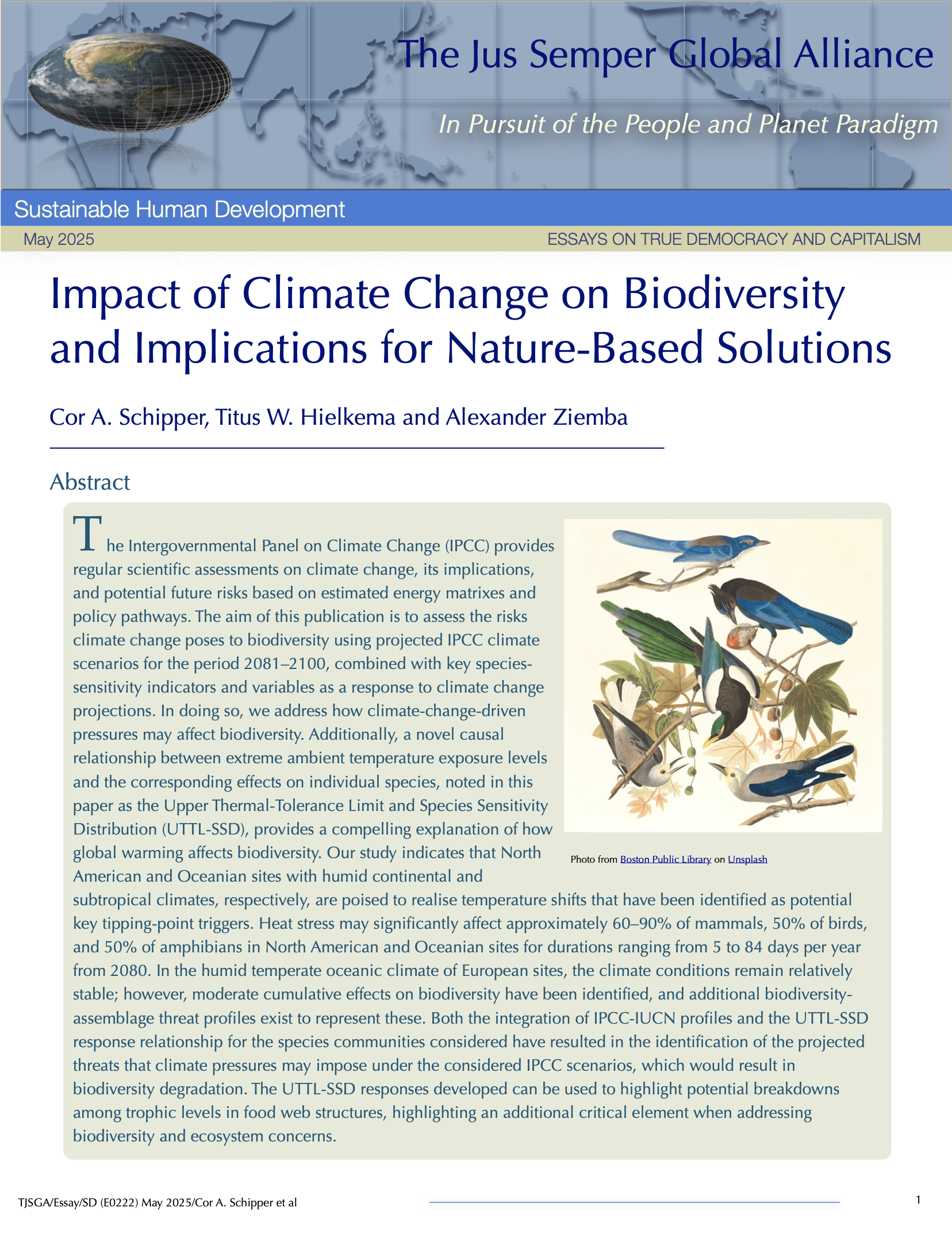
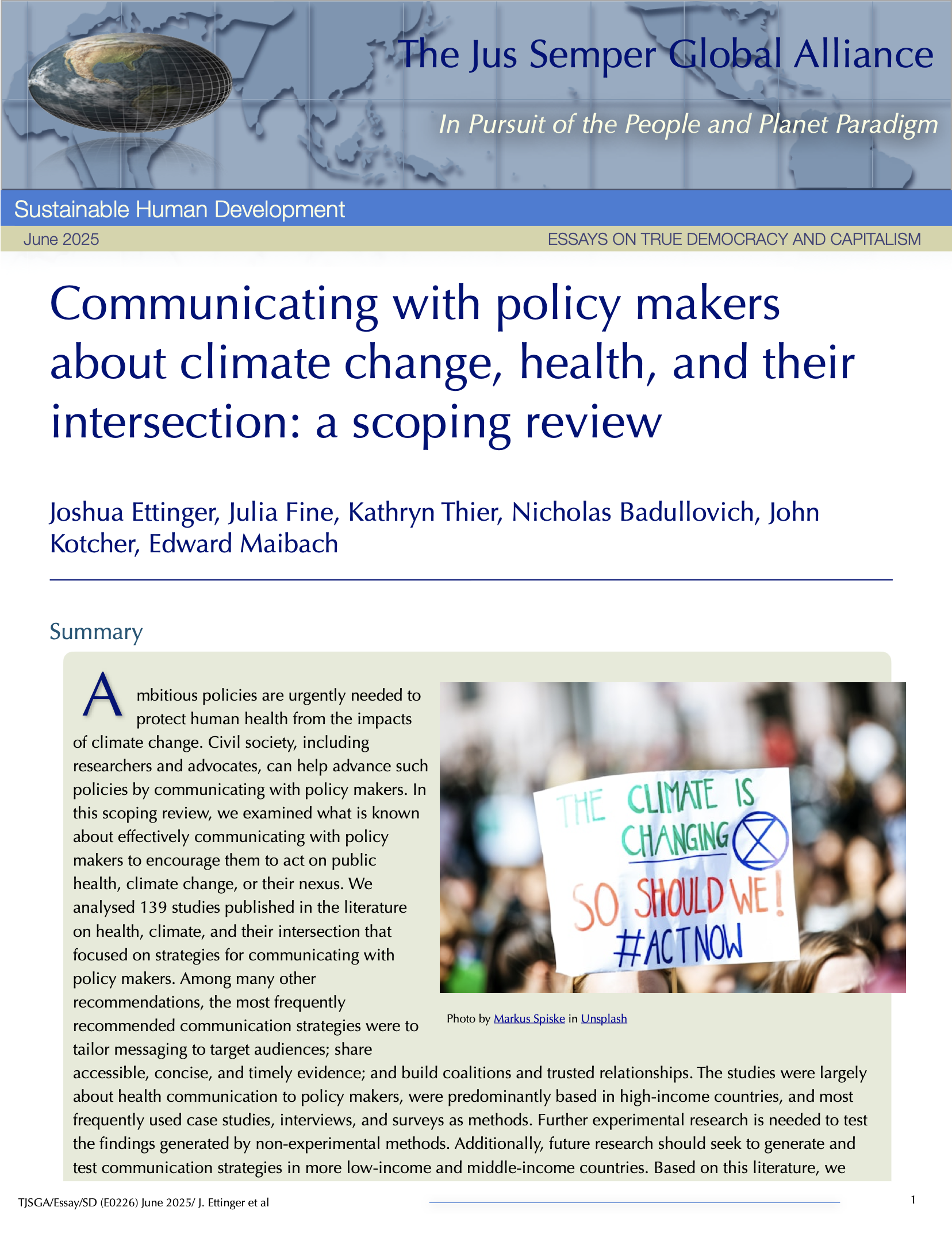
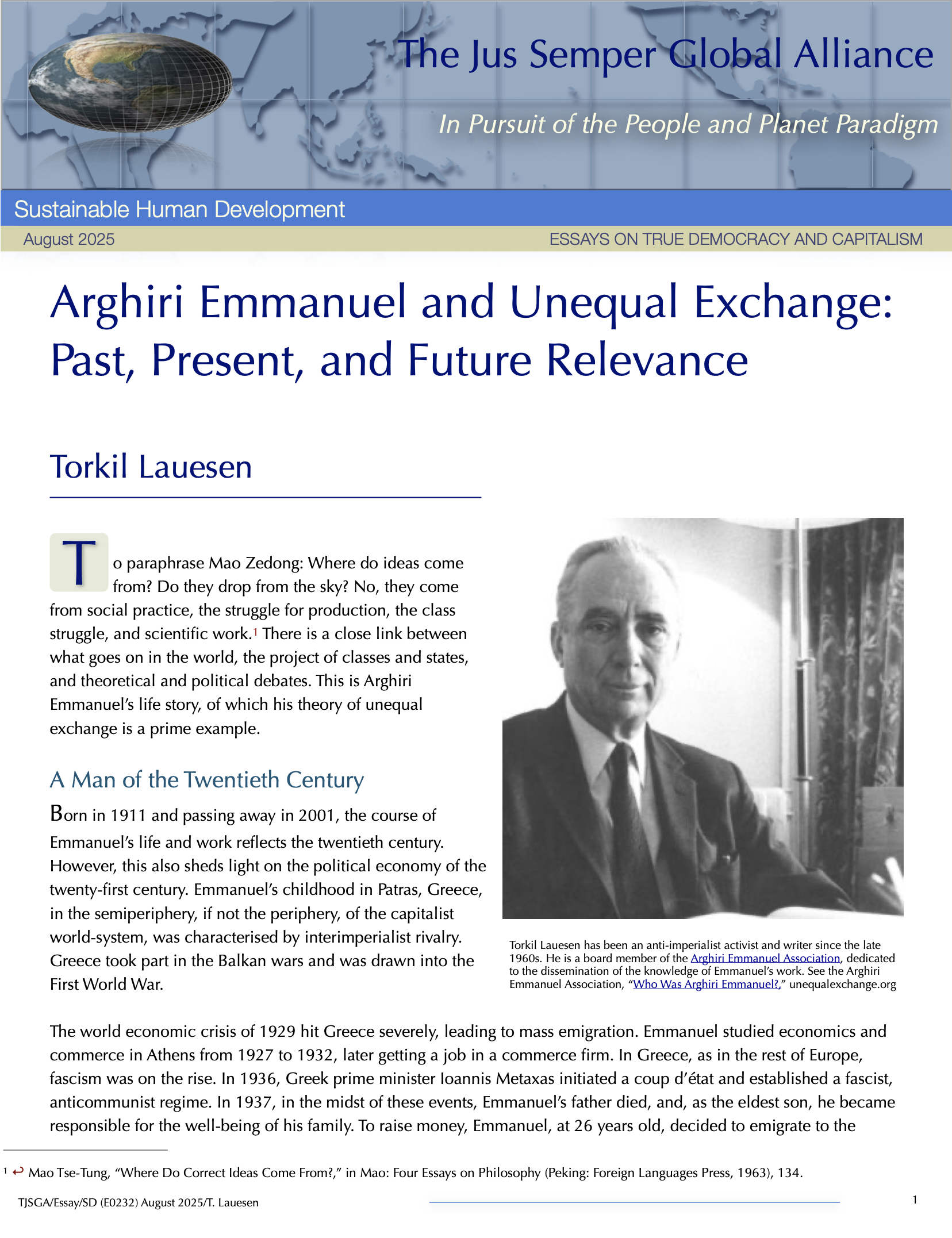
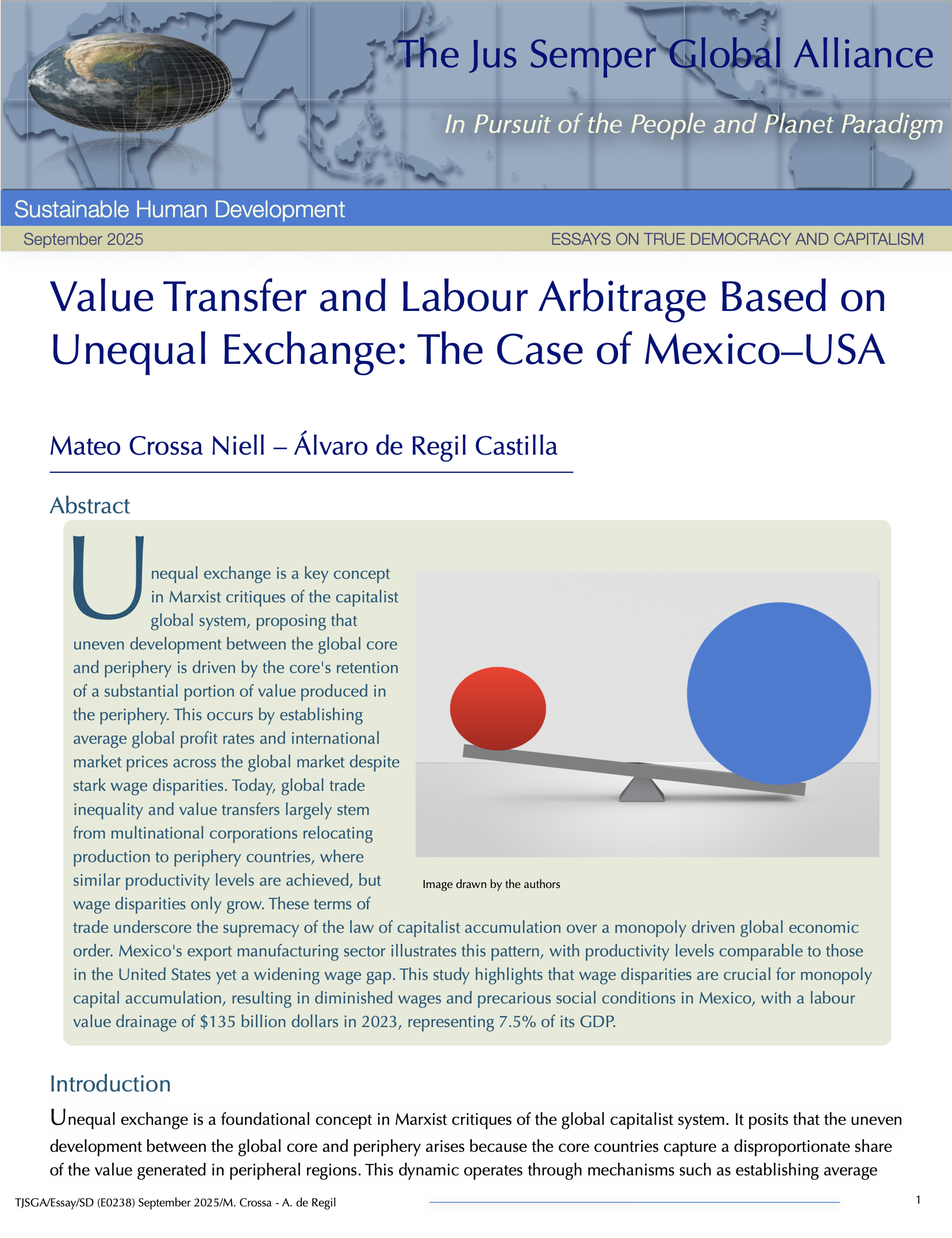
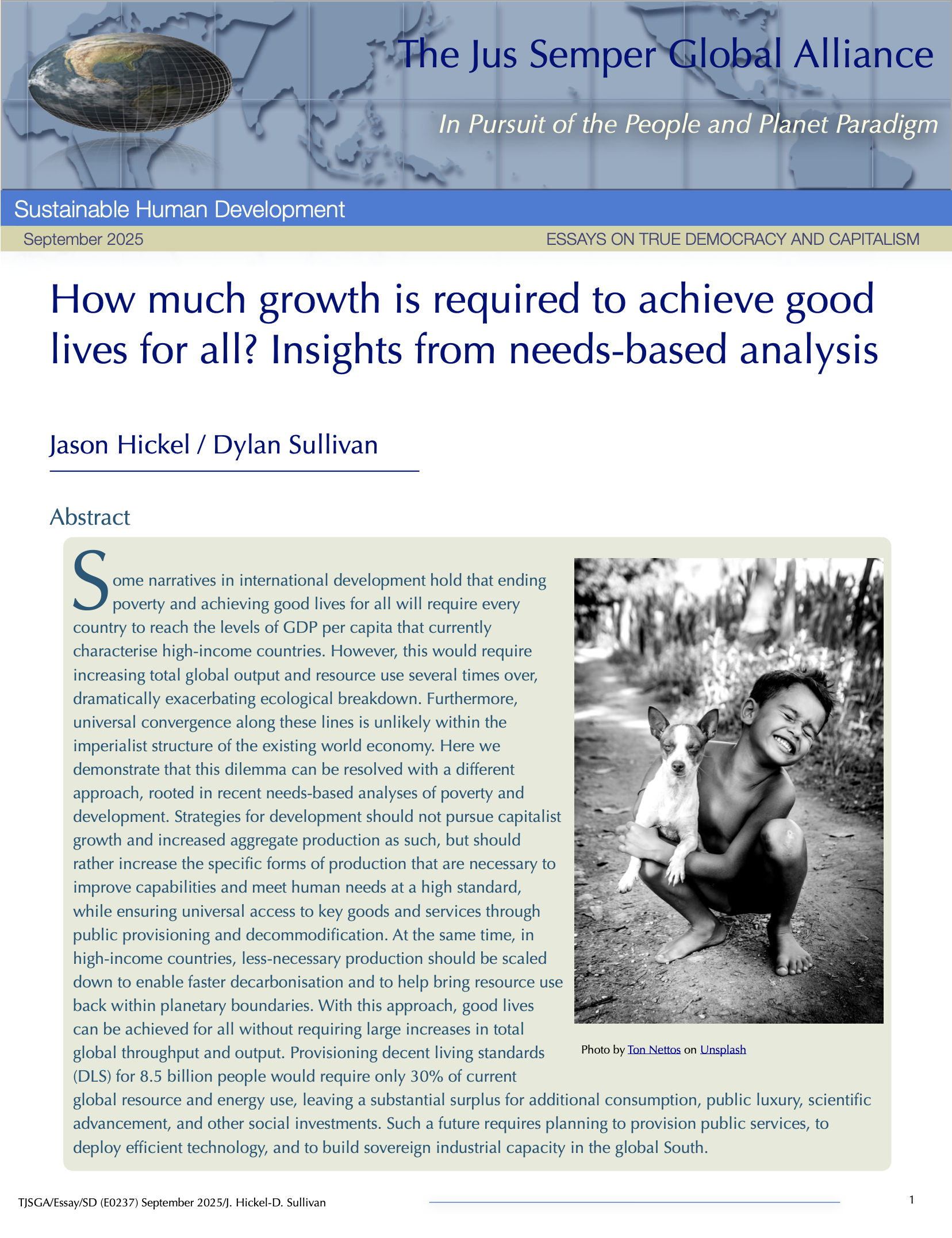
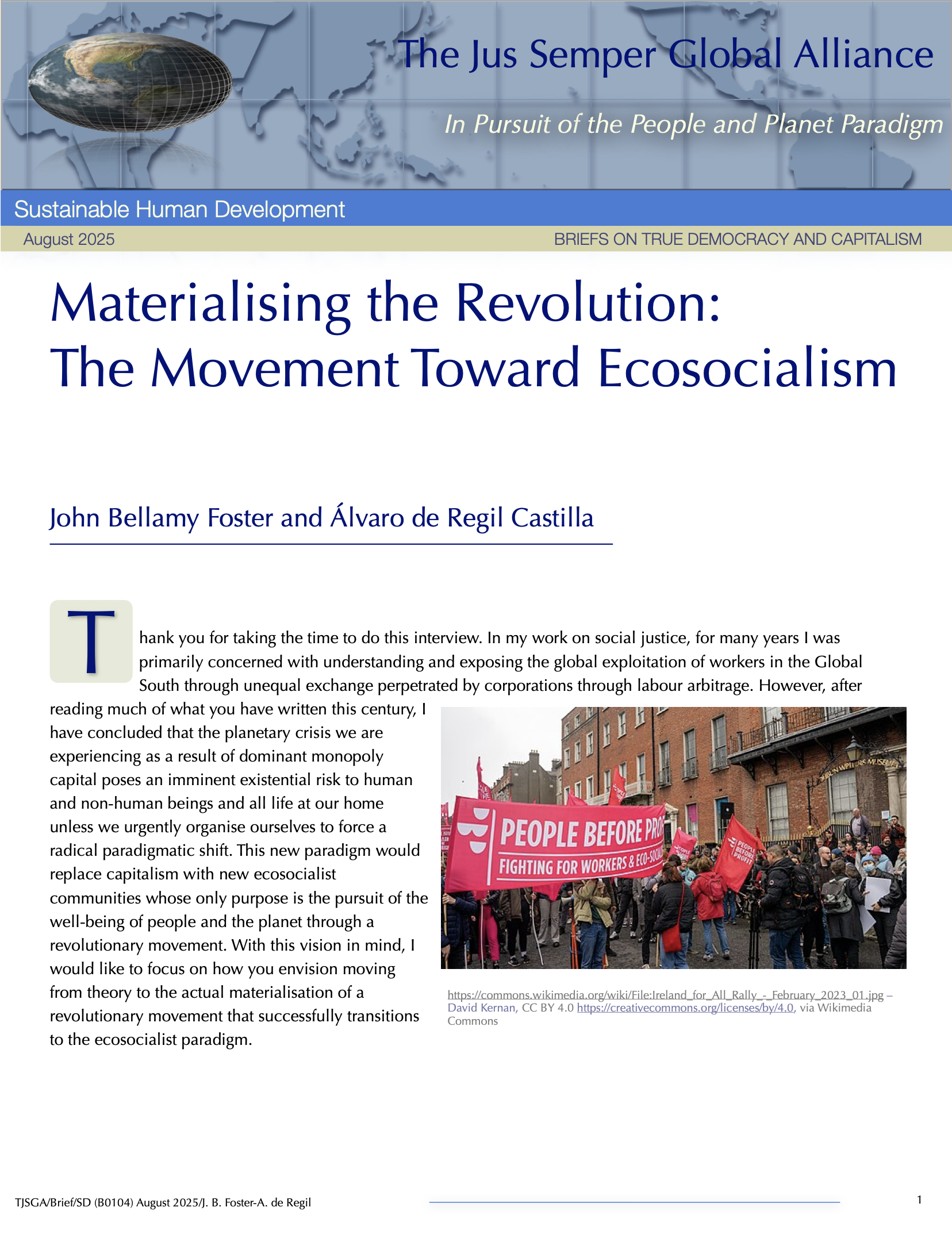
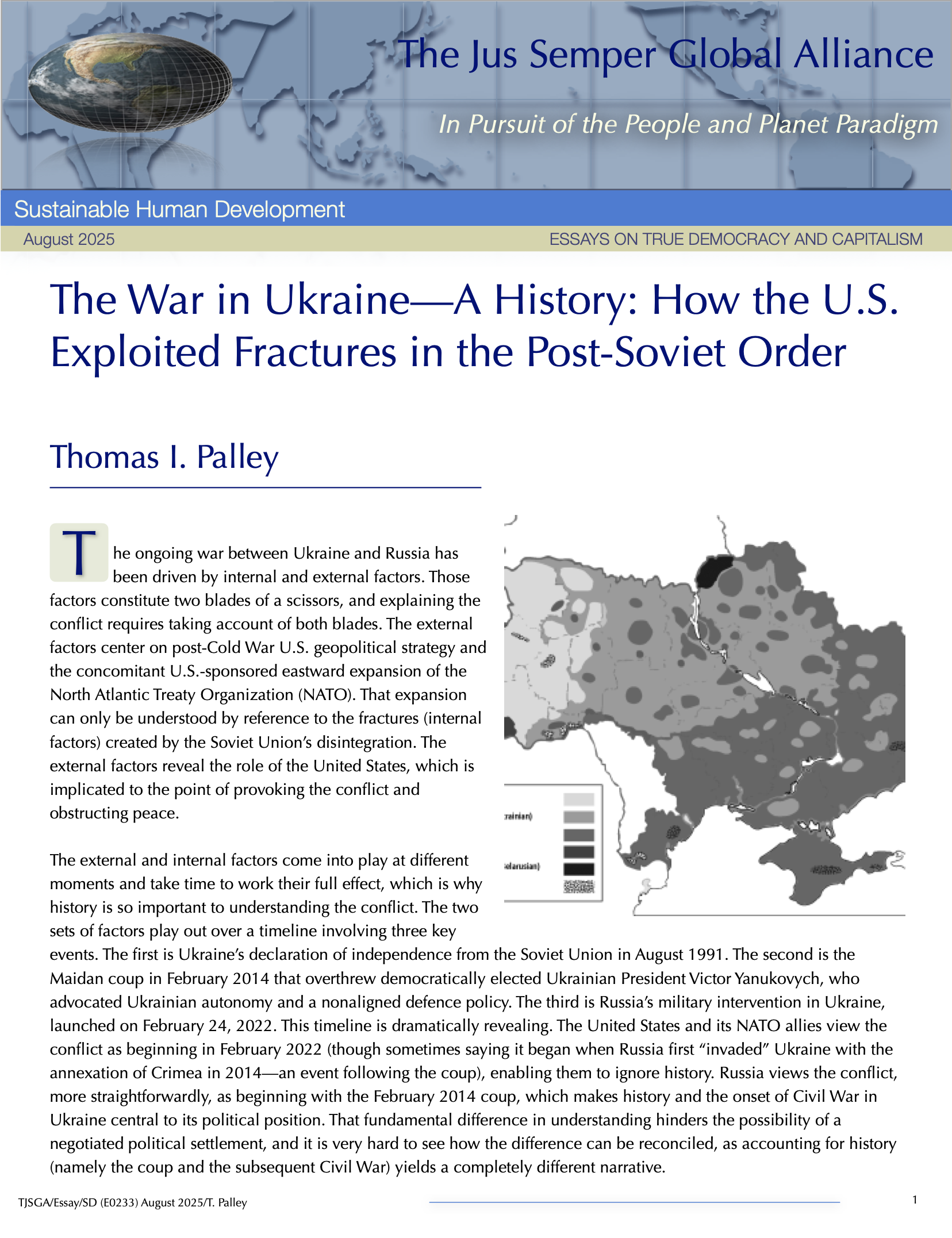
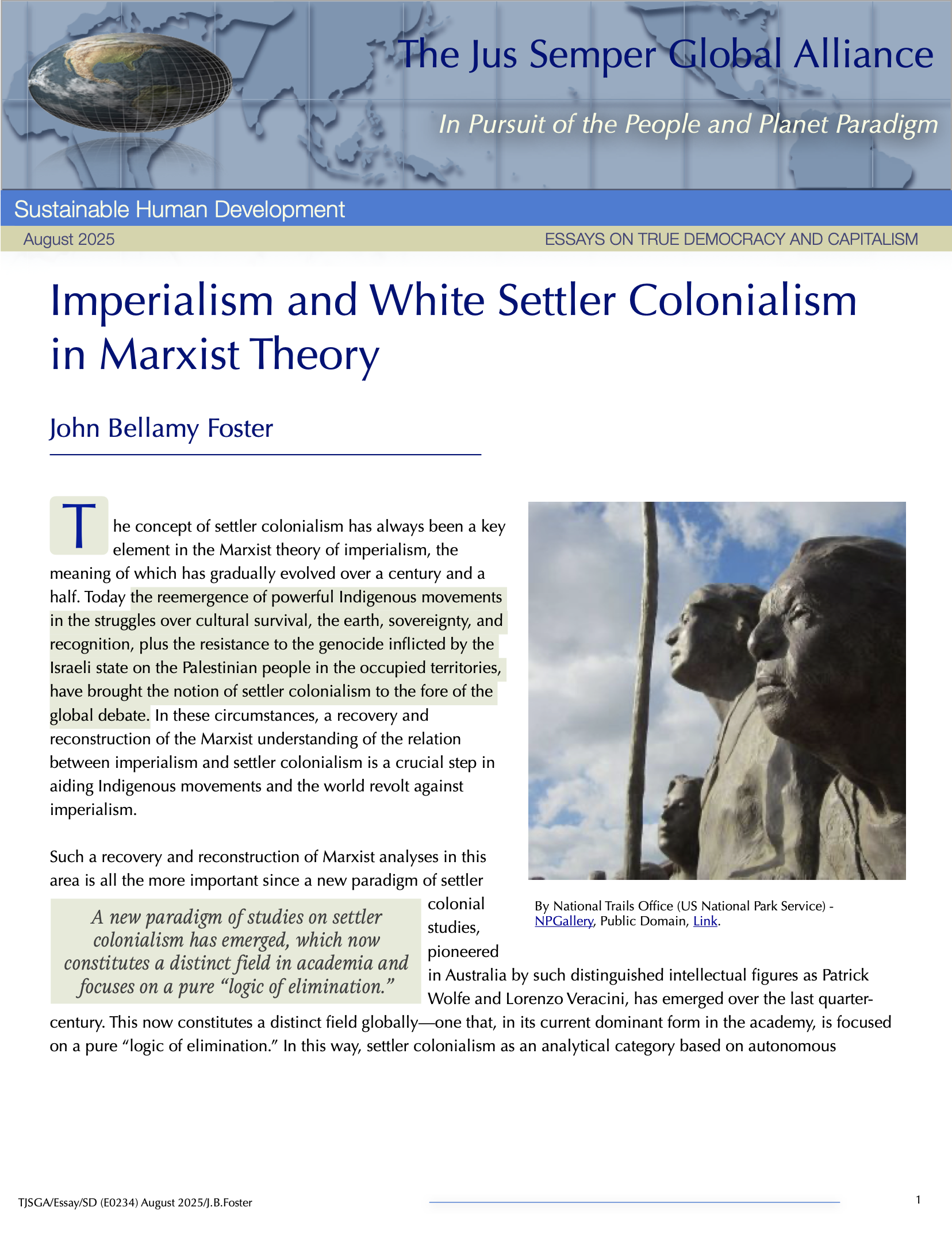
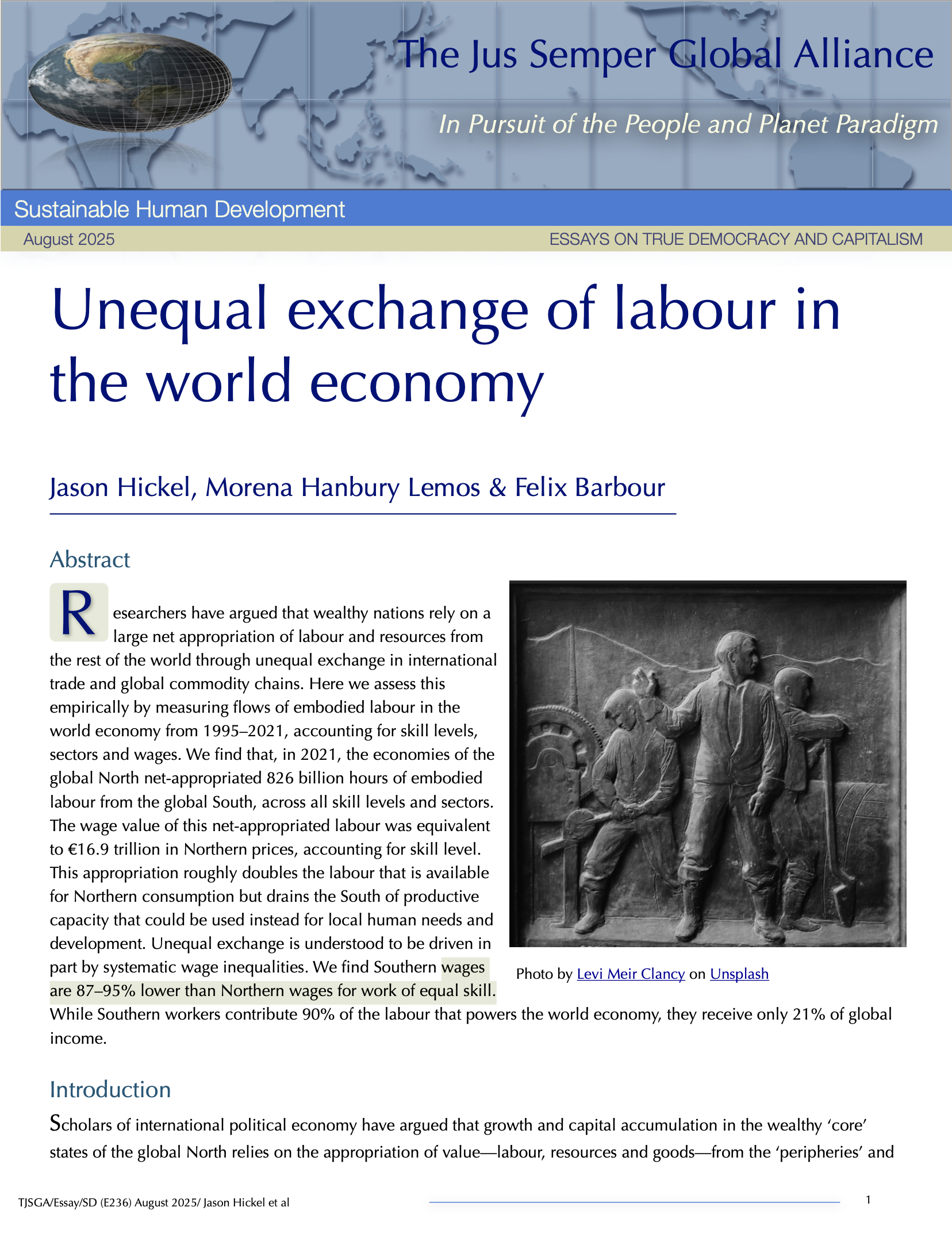
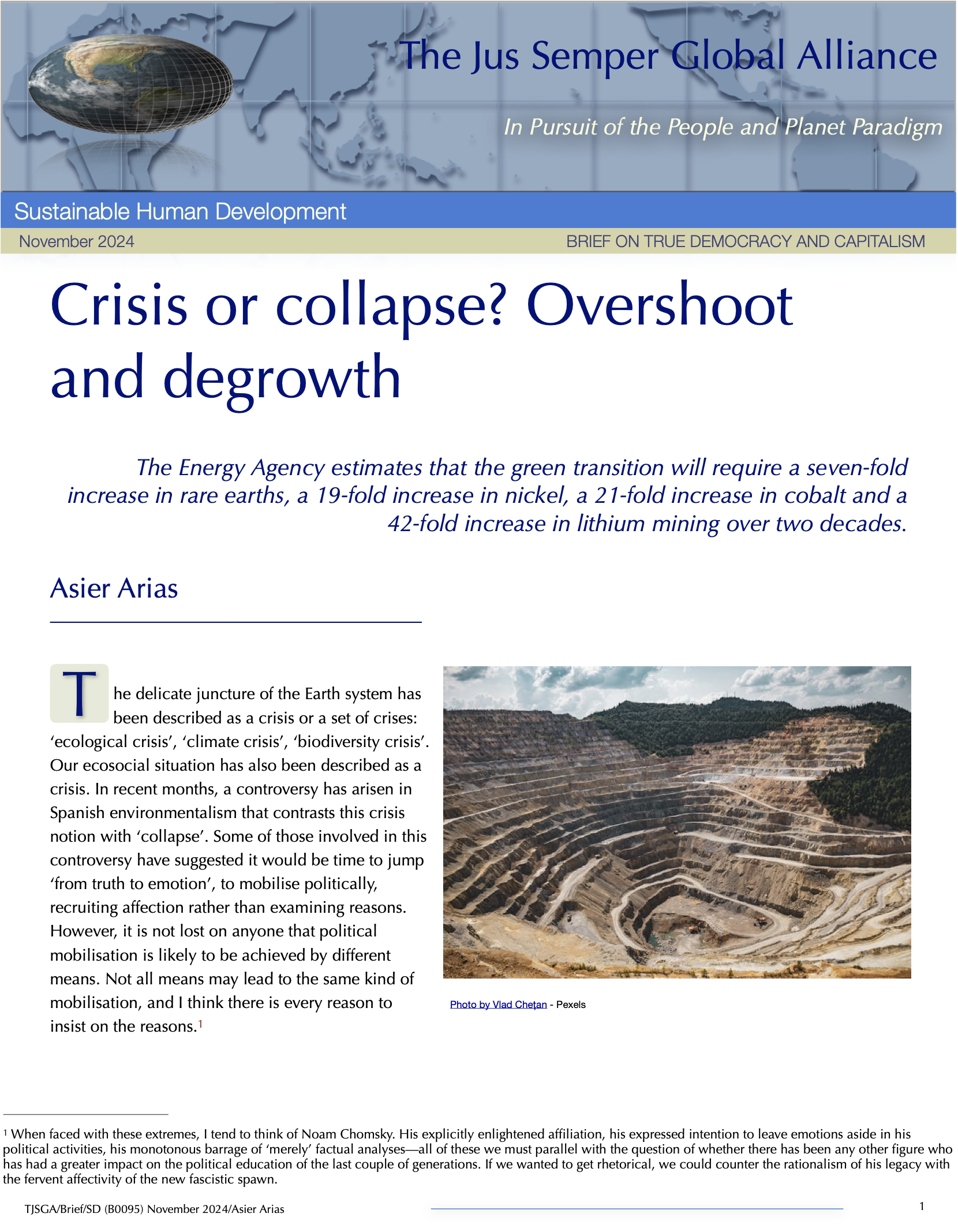
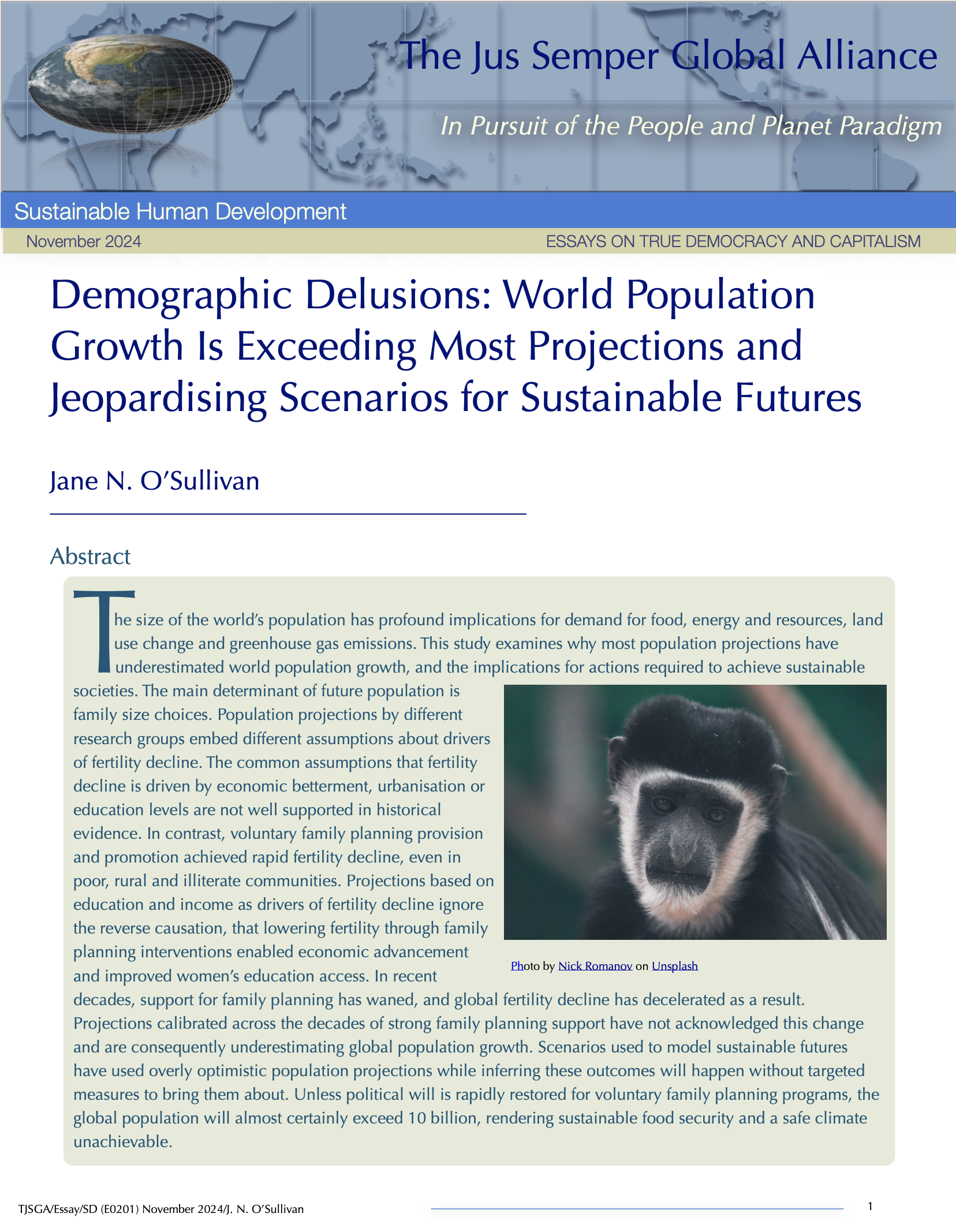
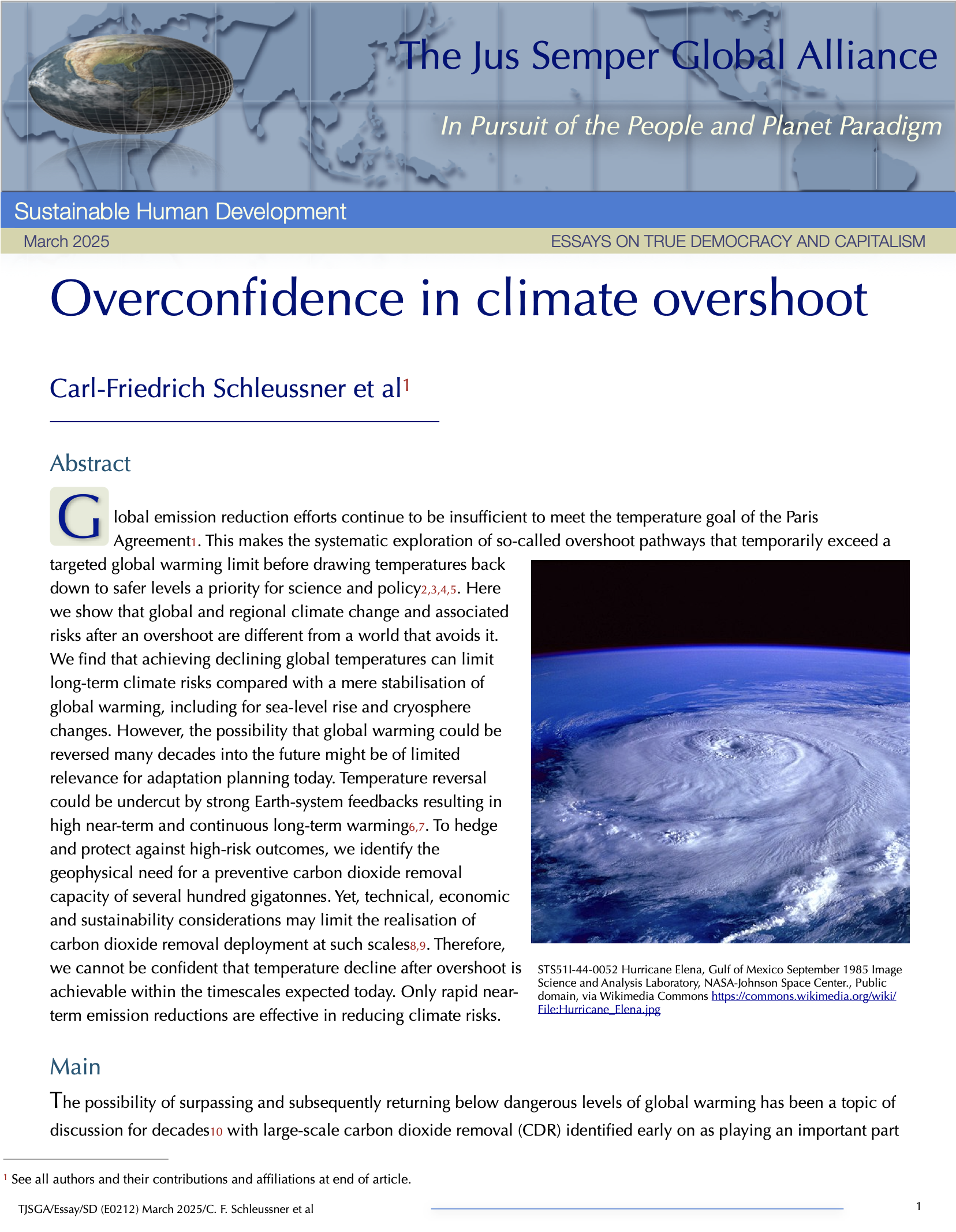
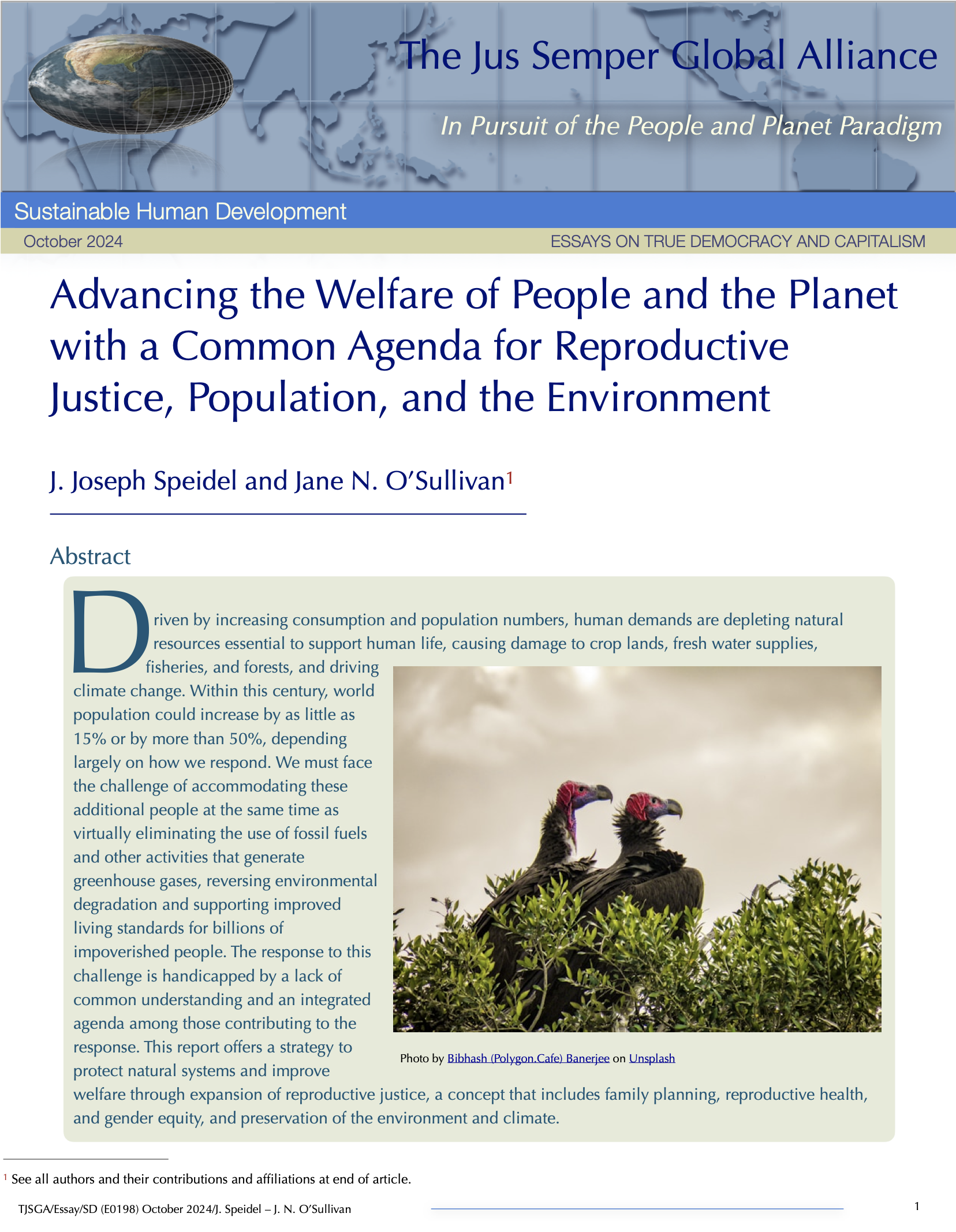
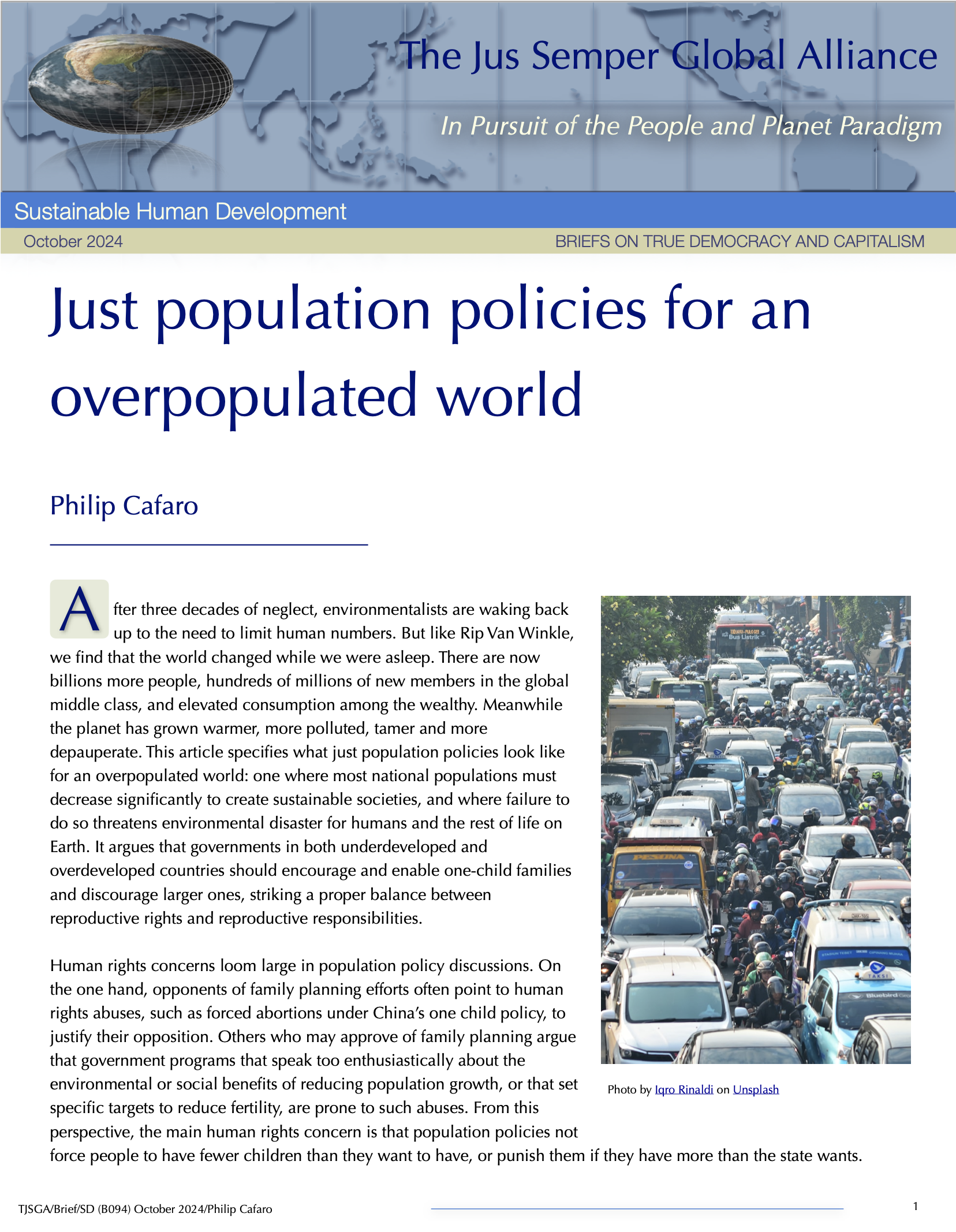
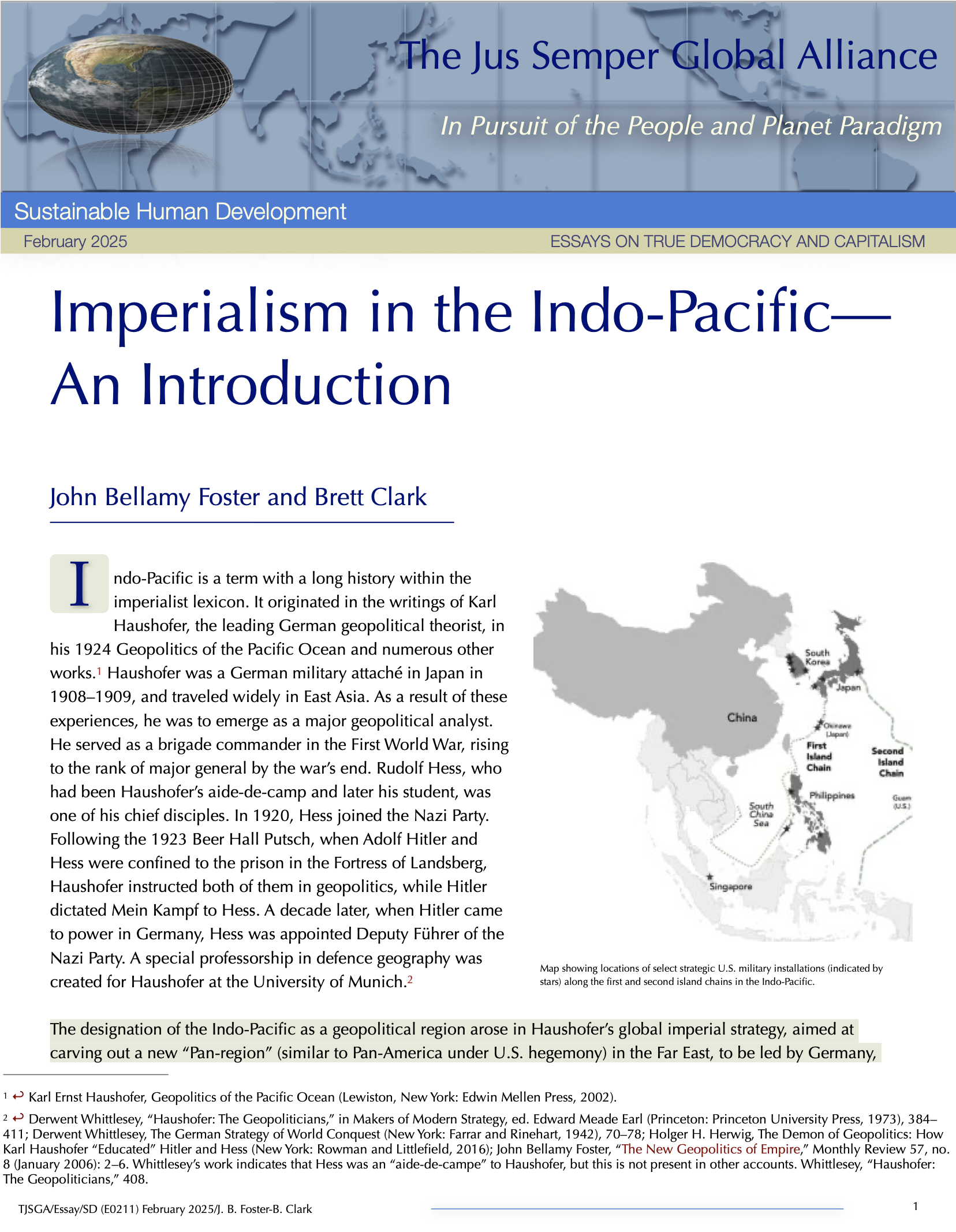
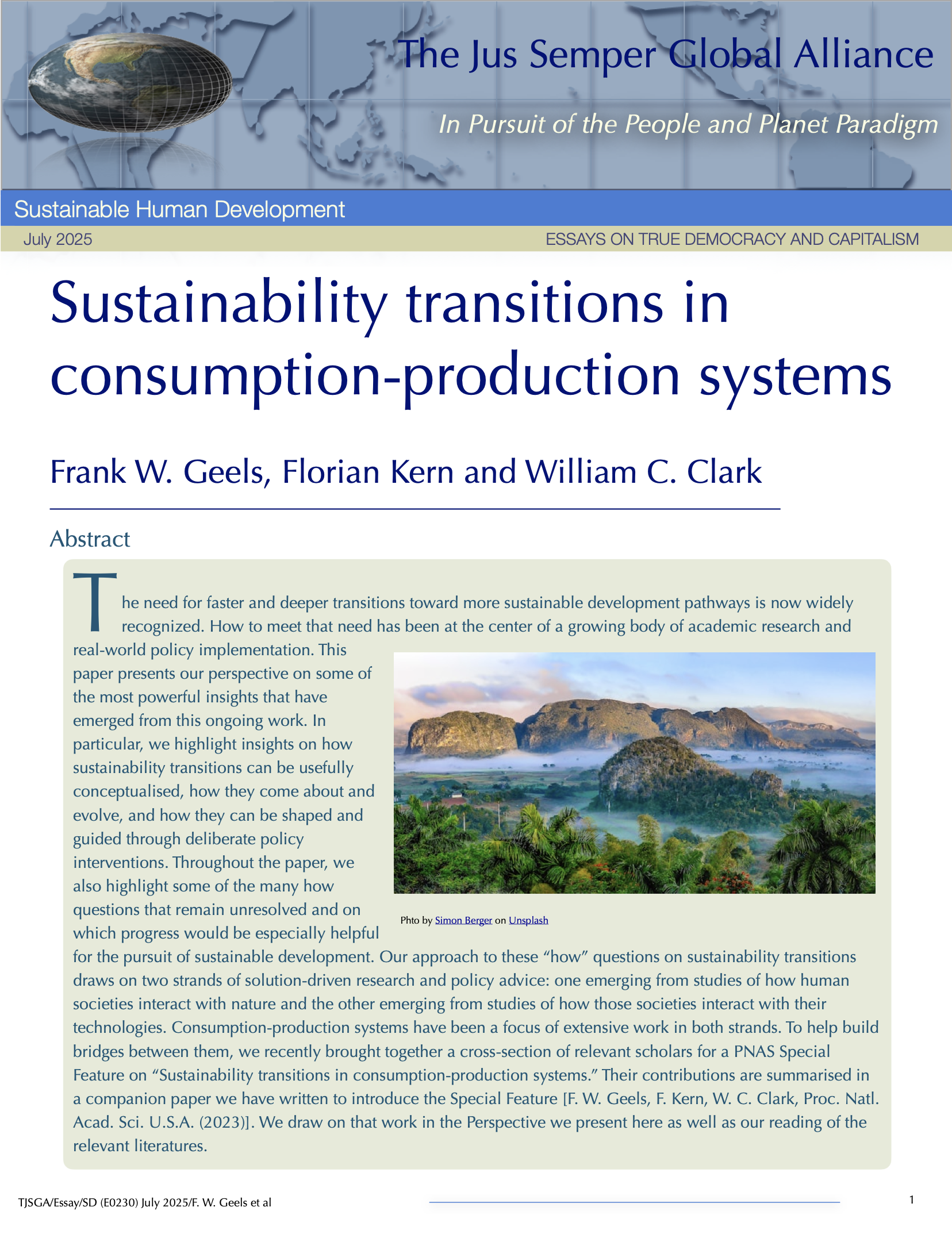
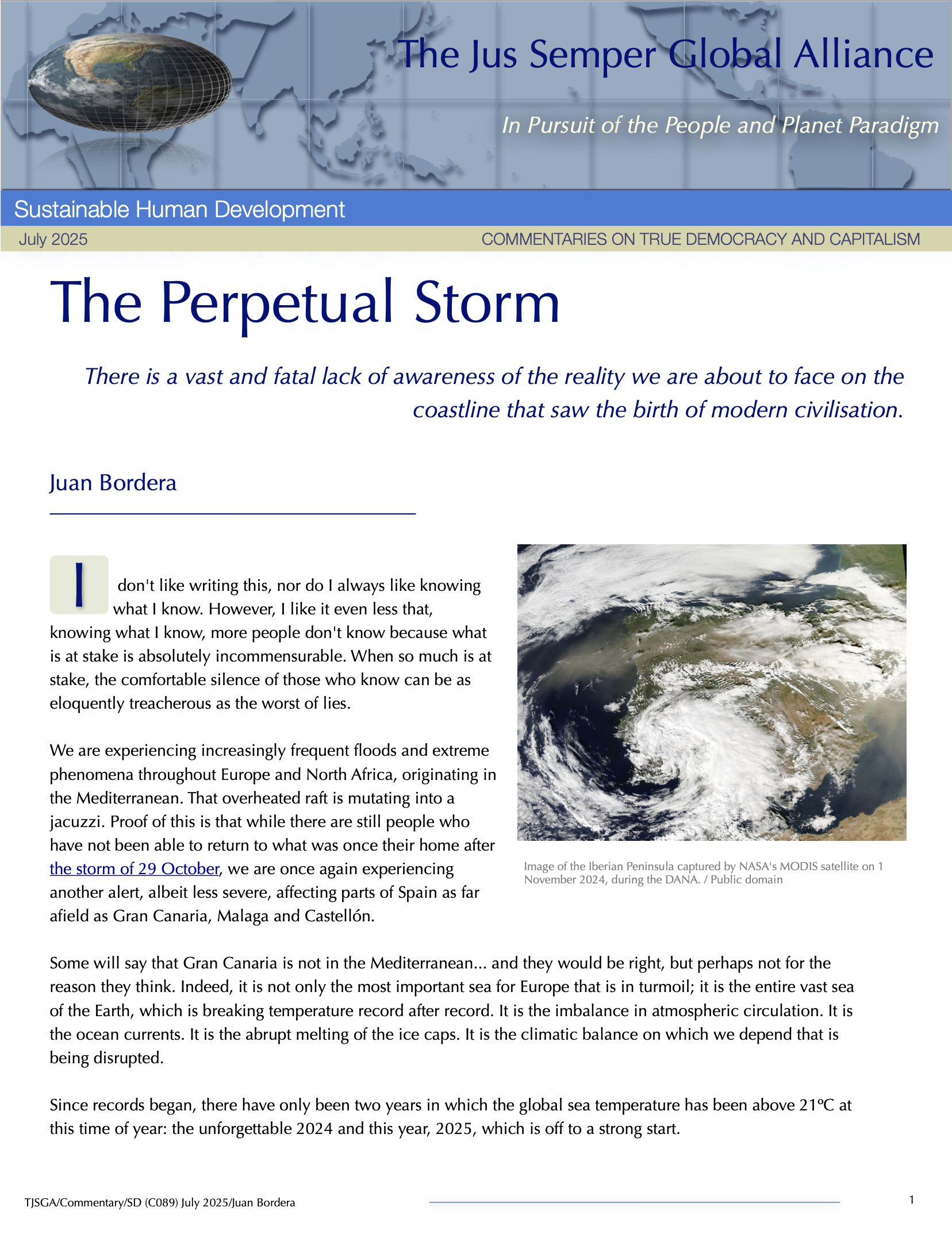
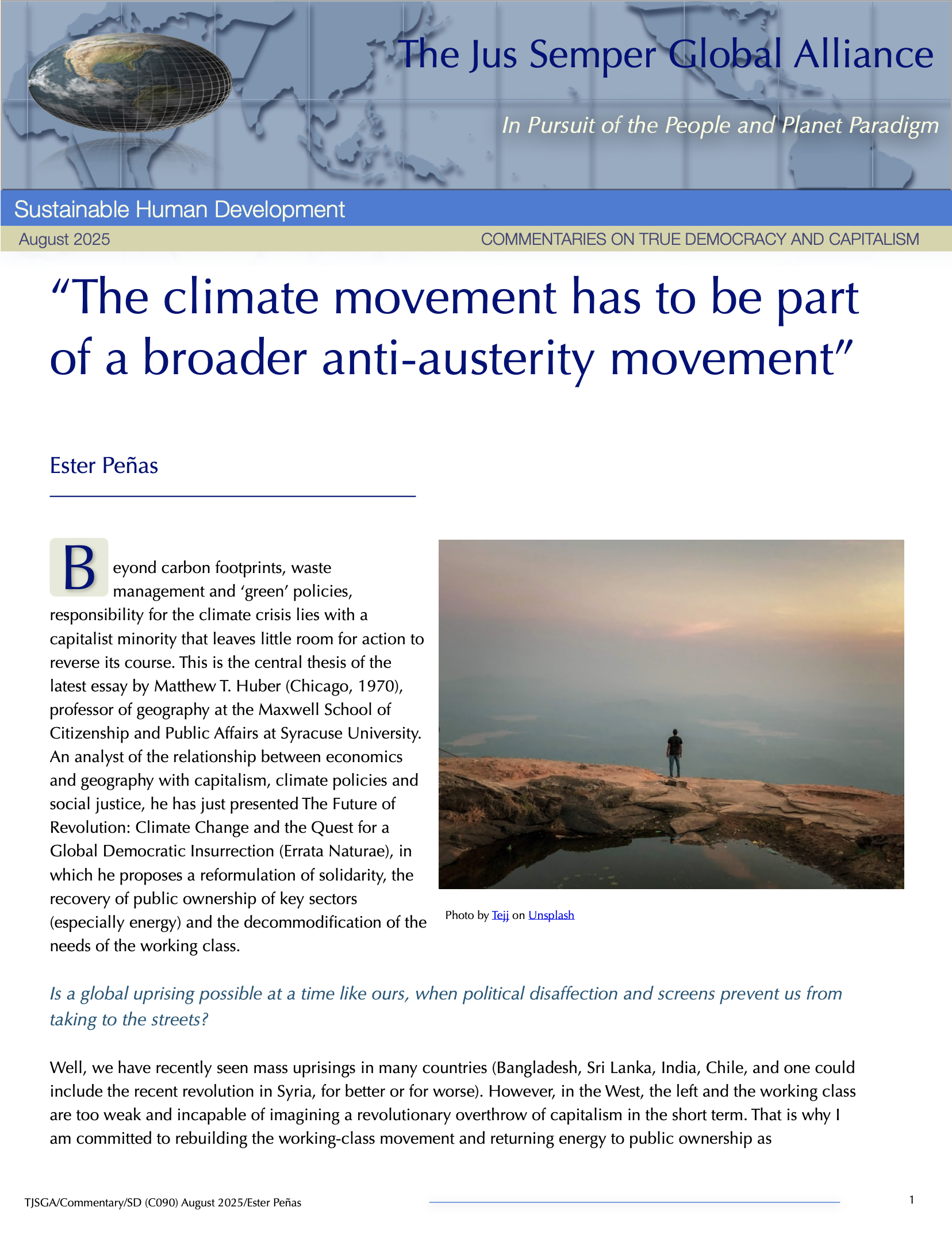
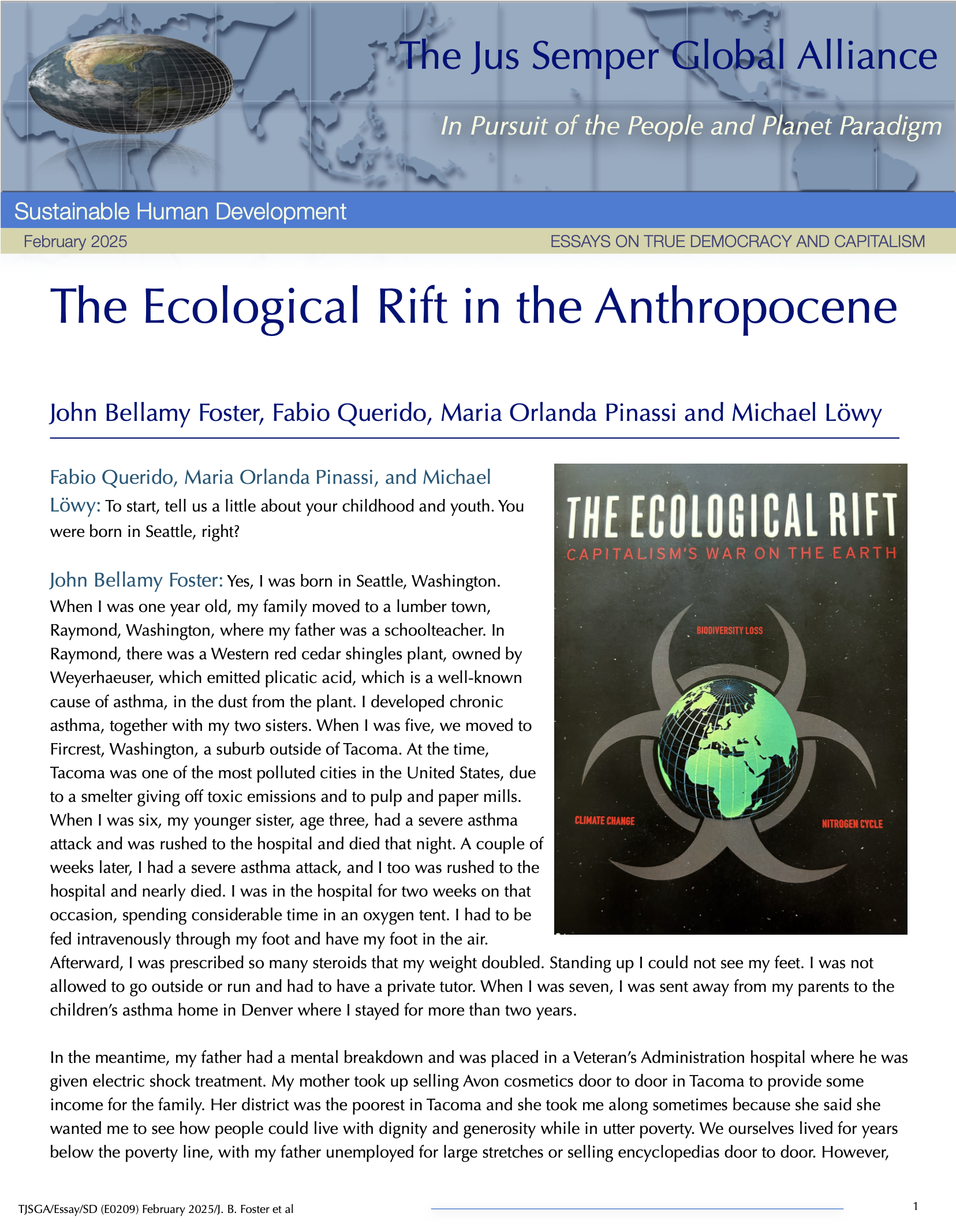
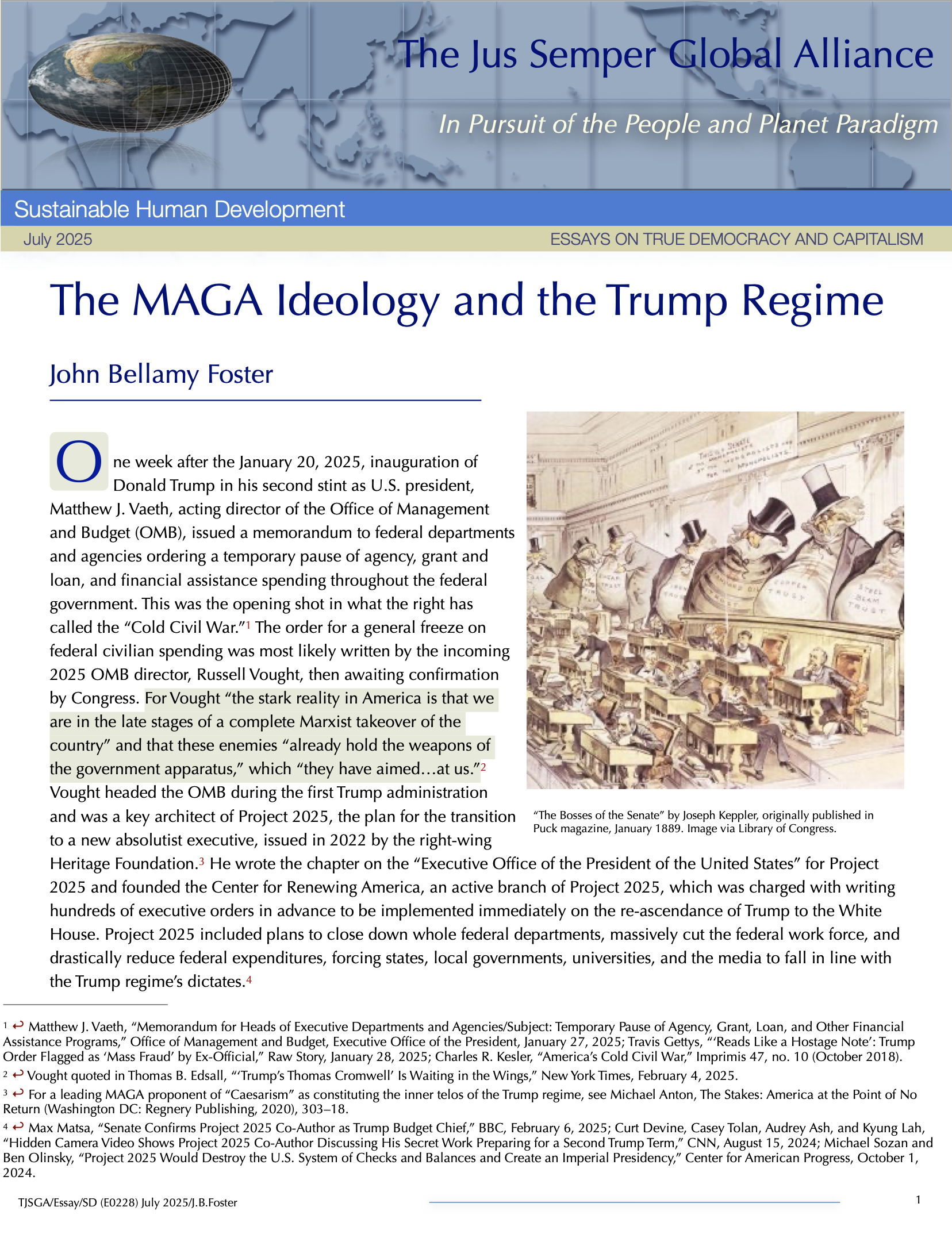
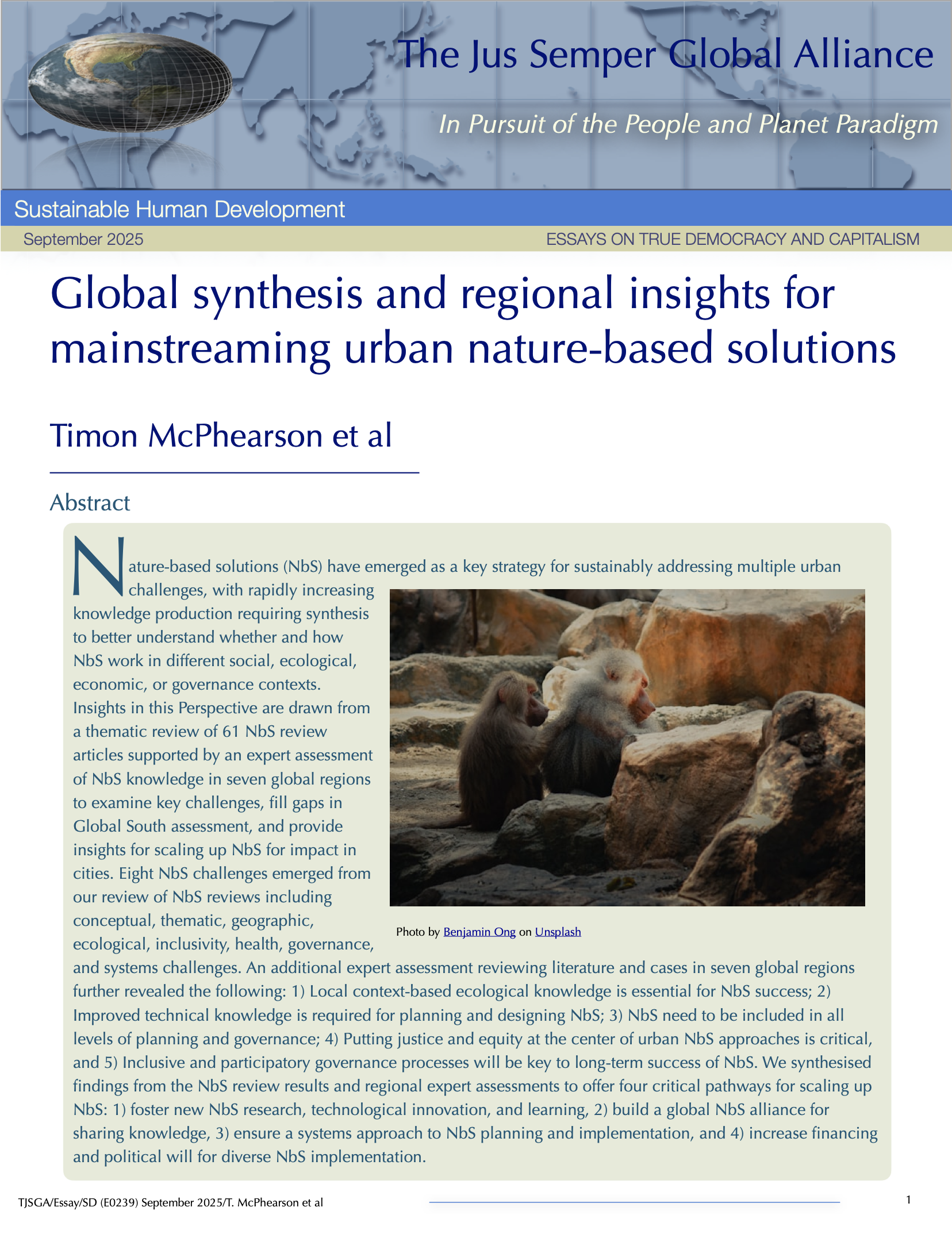
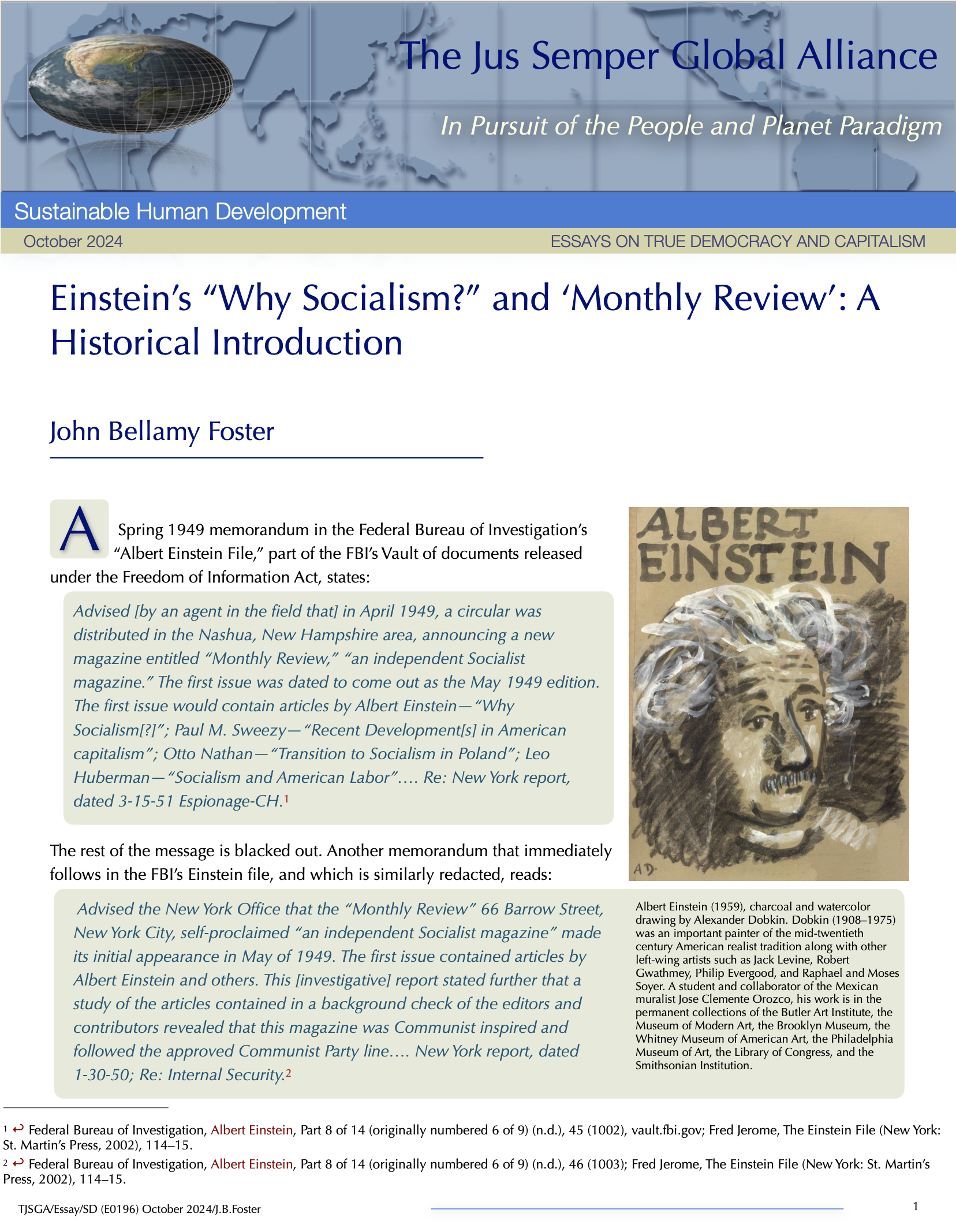
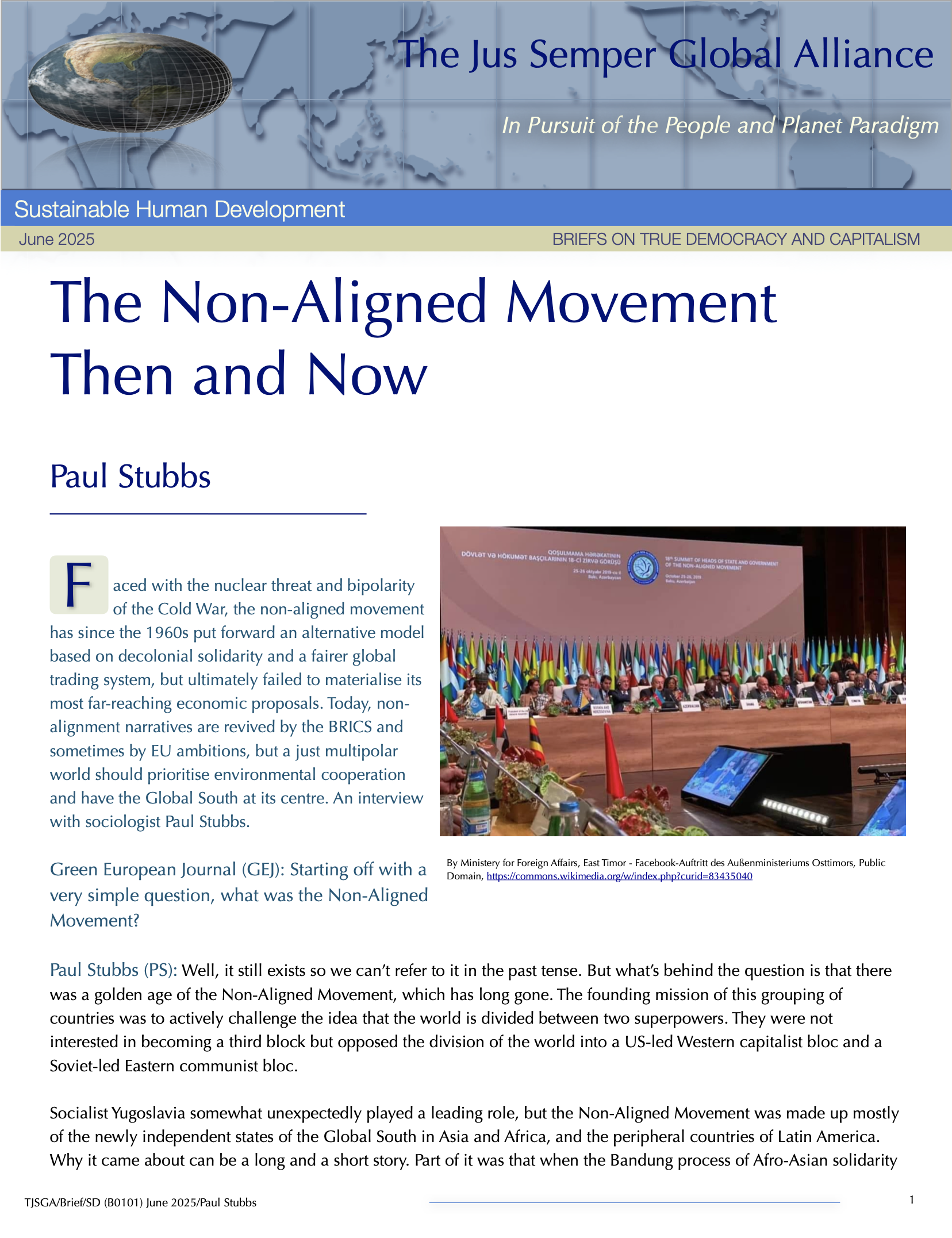

%2016.45.27.jpg)
